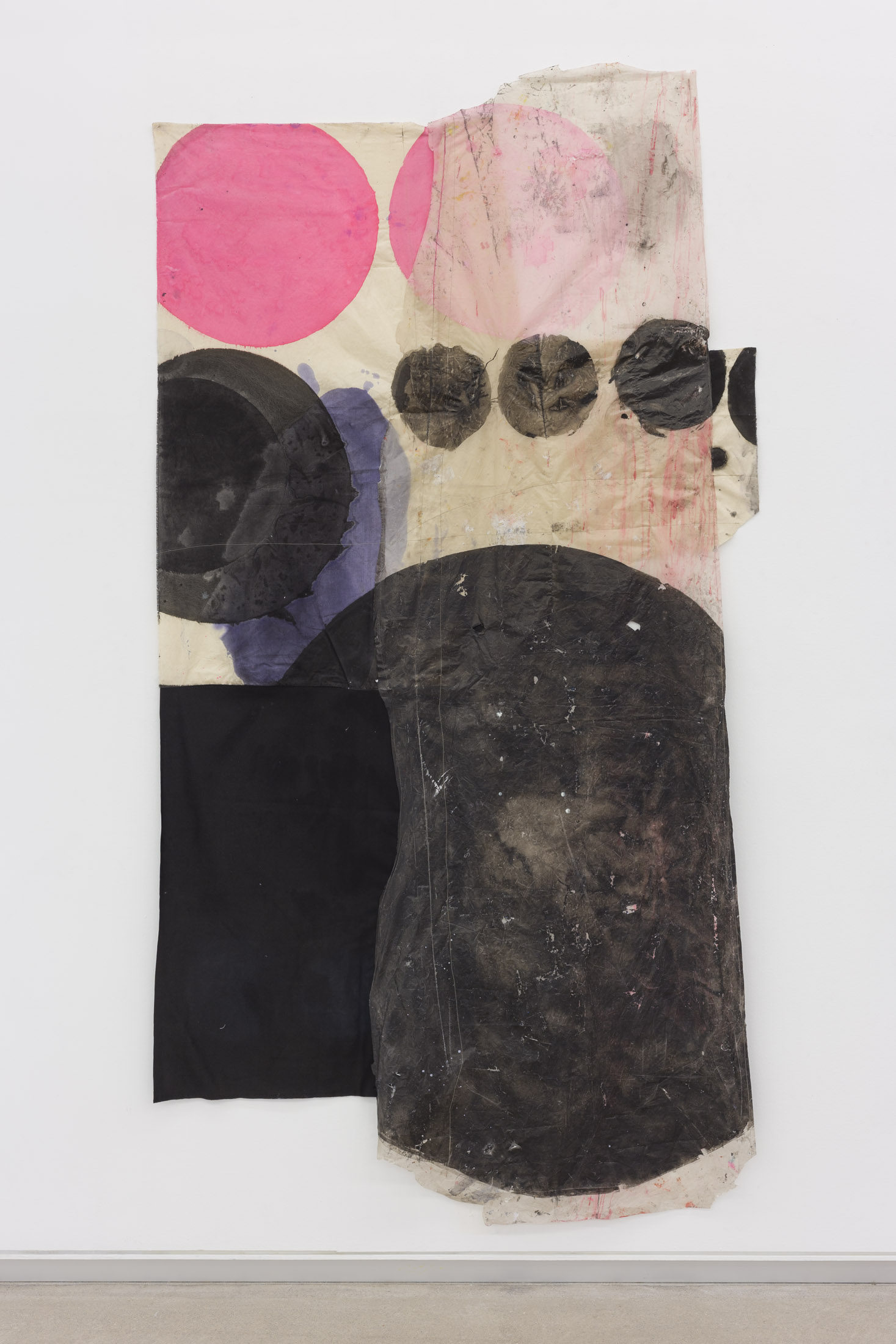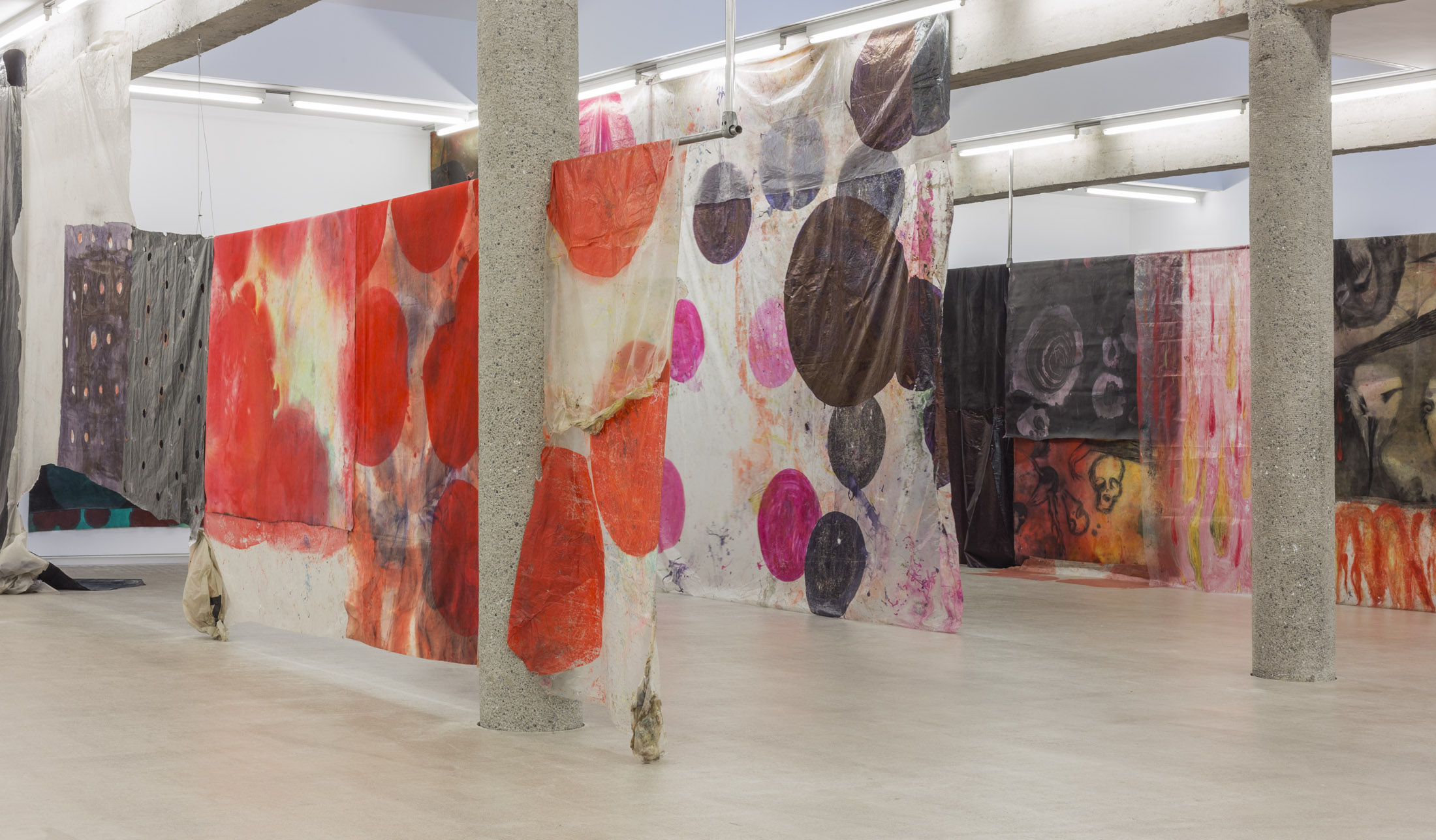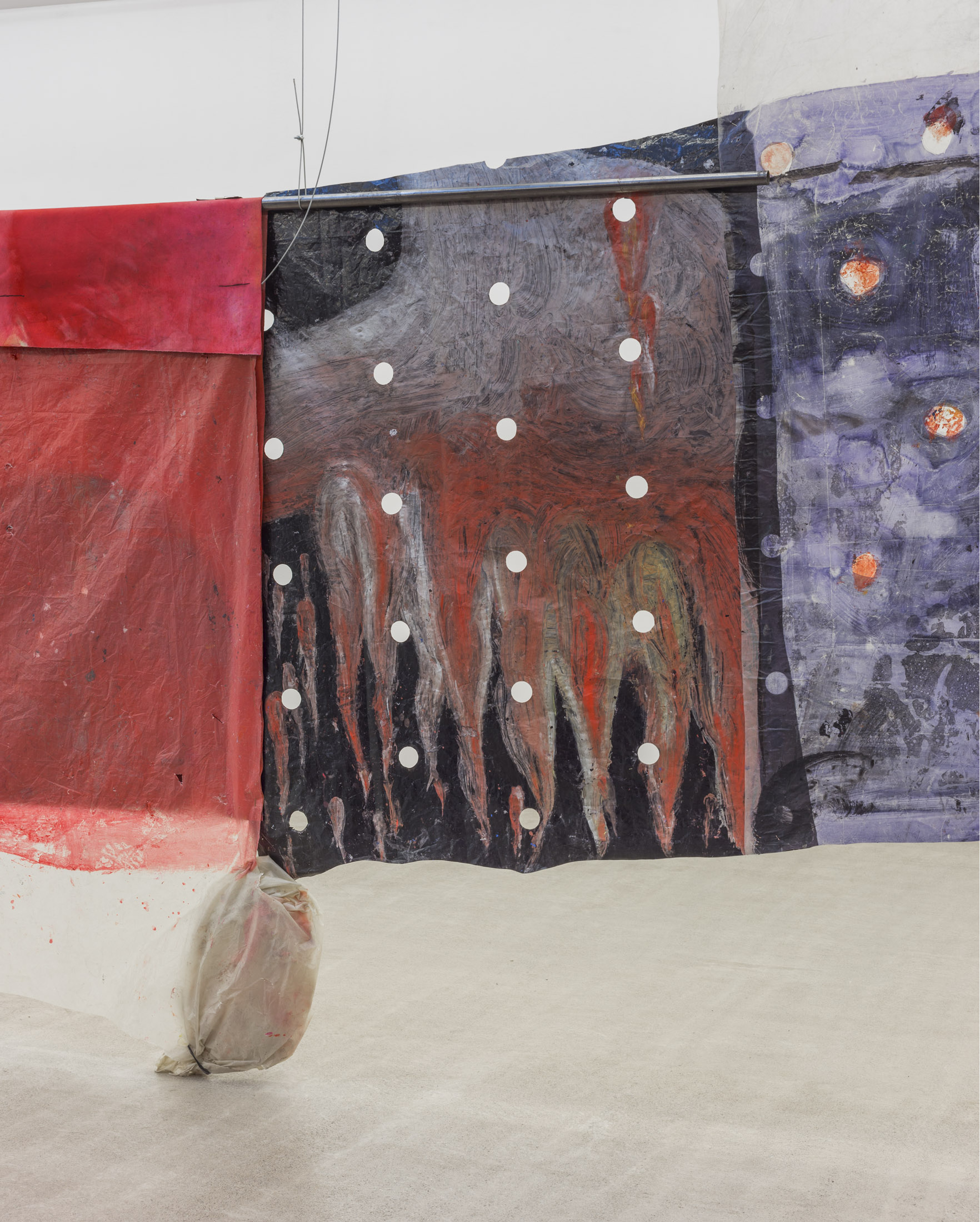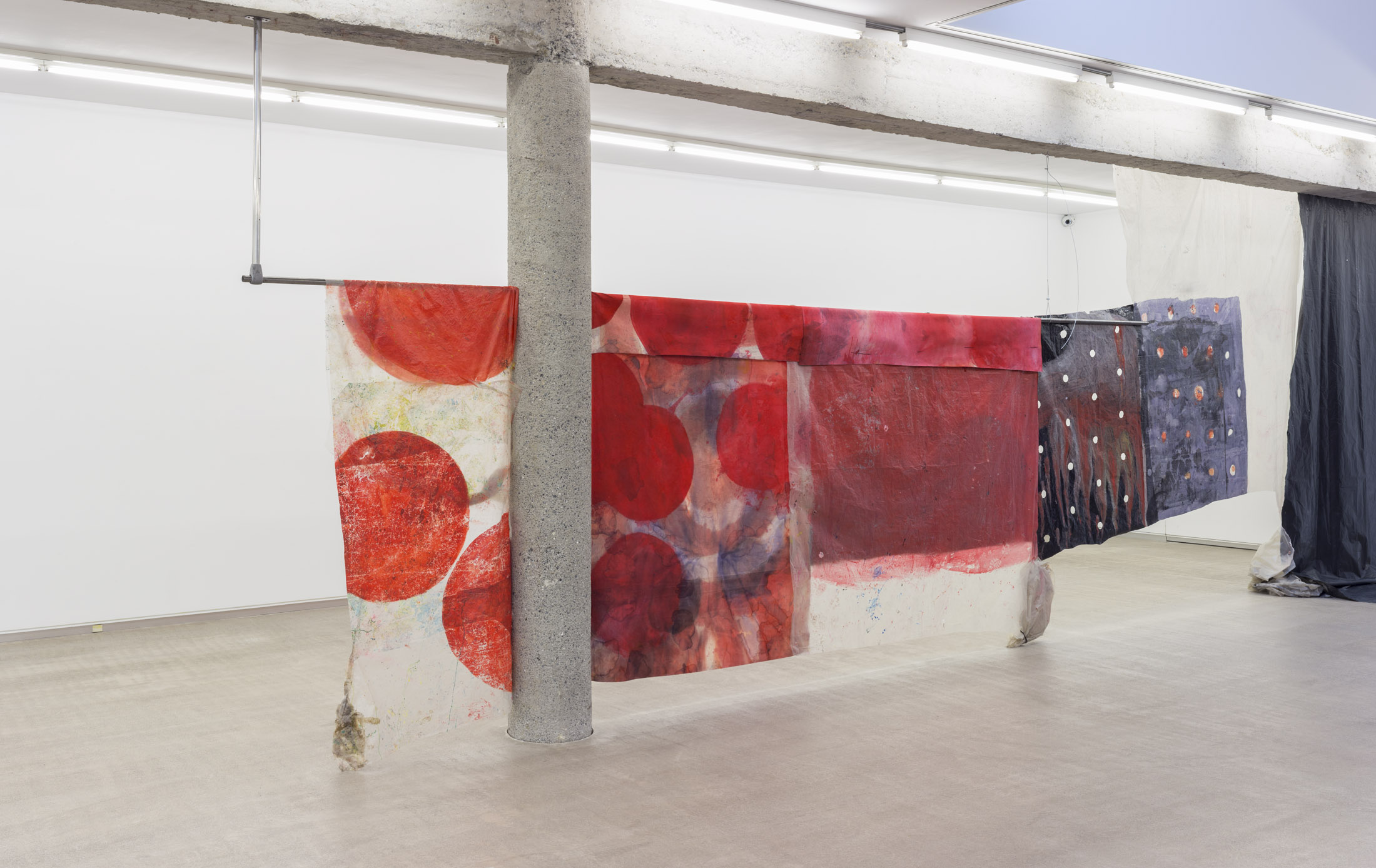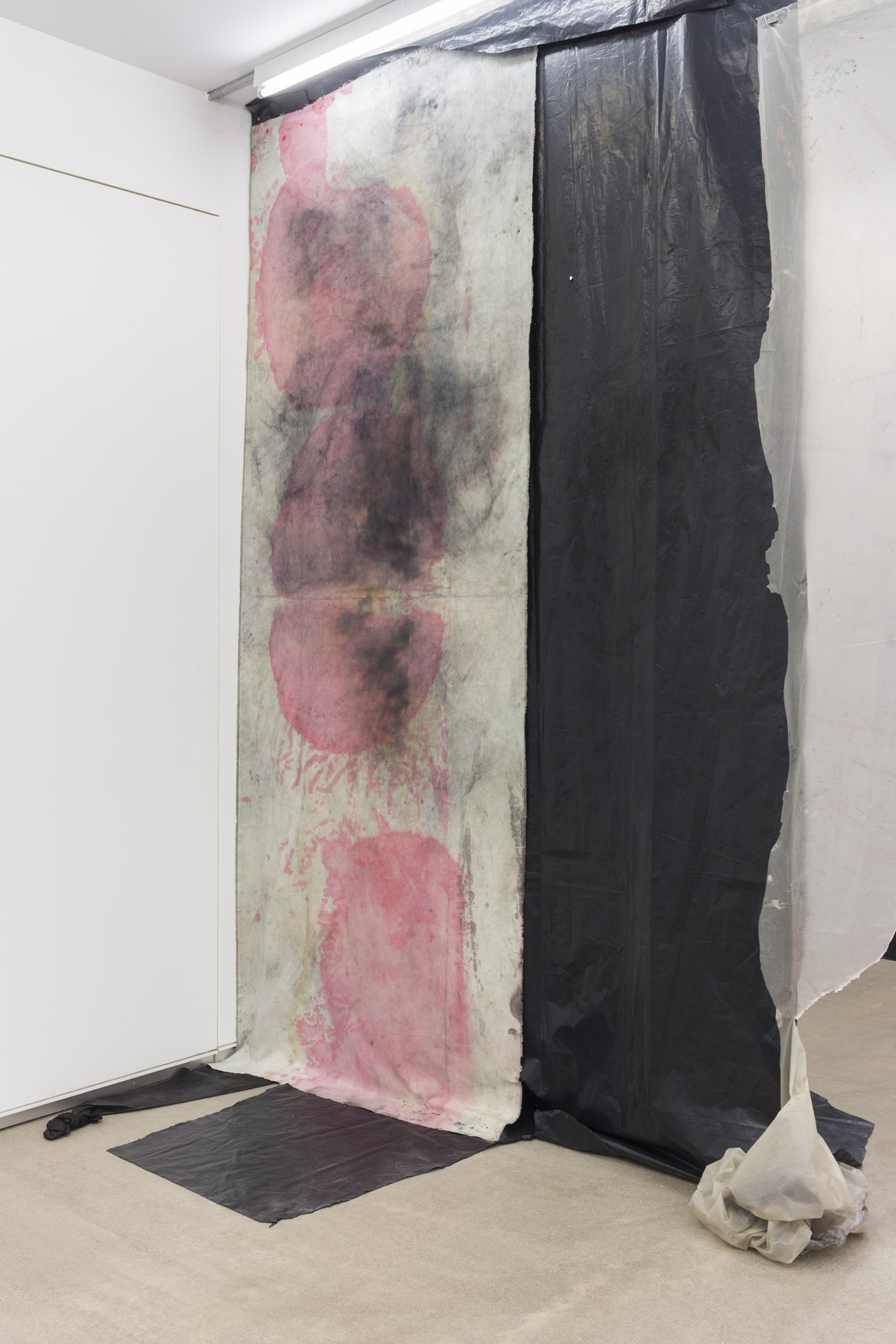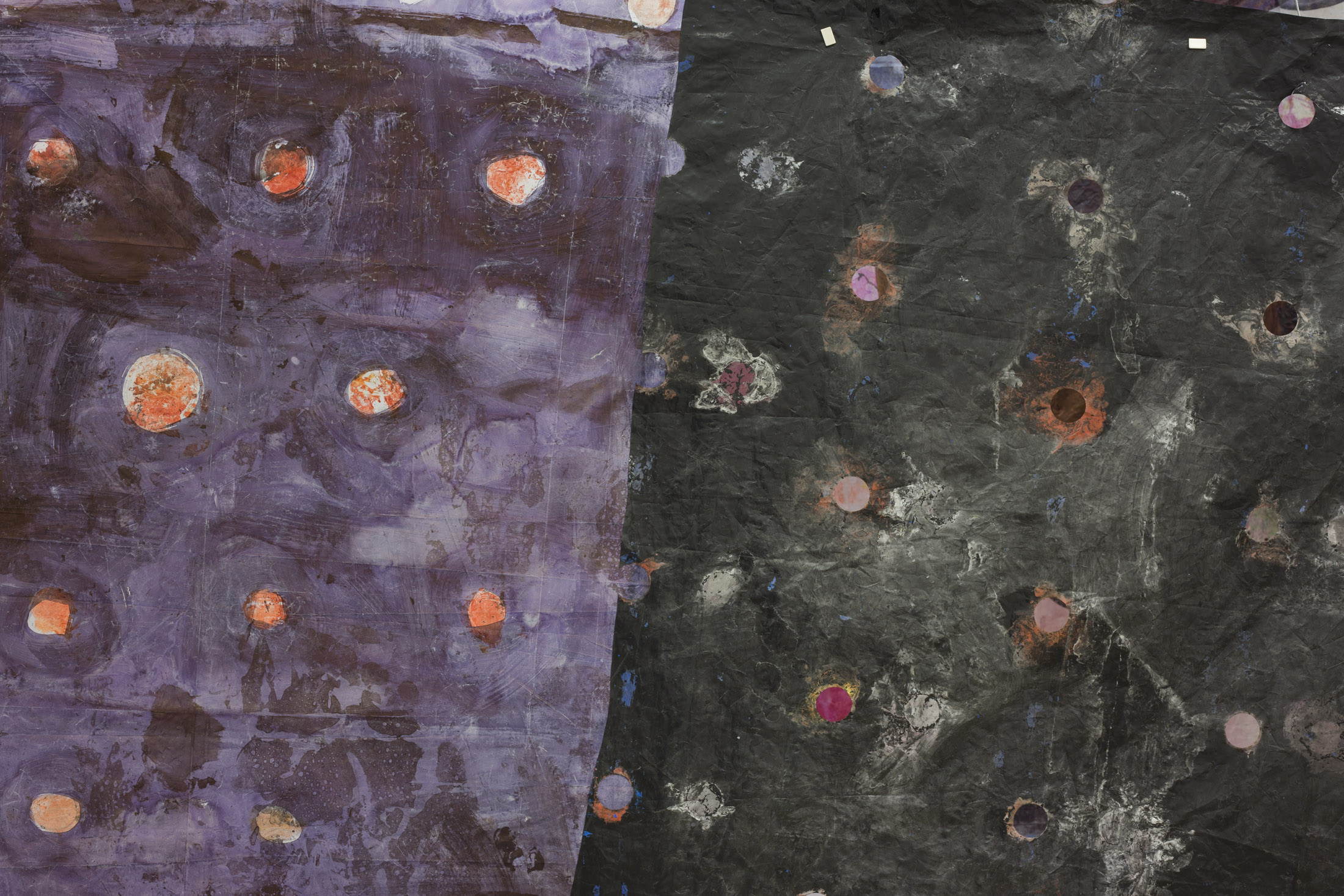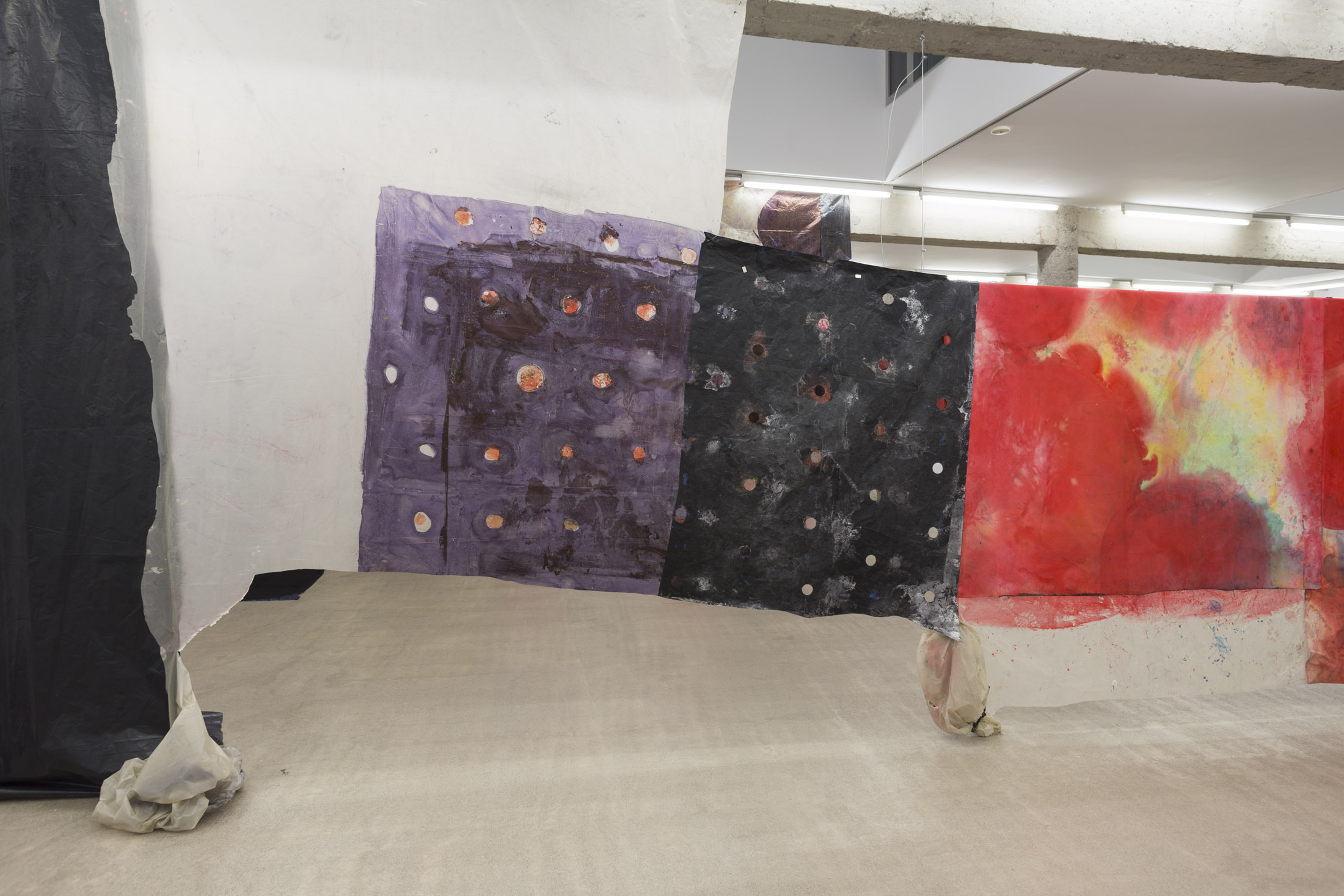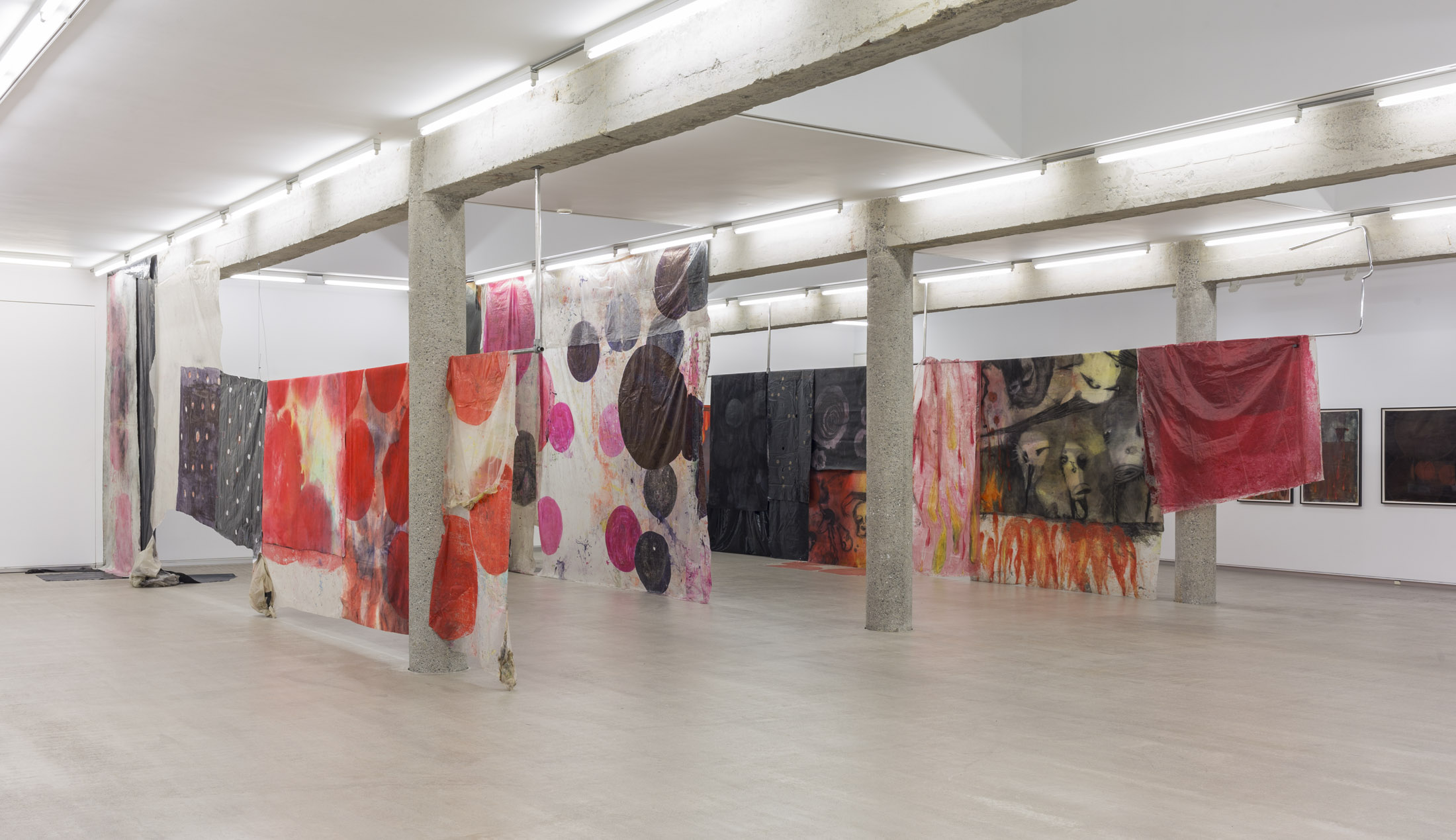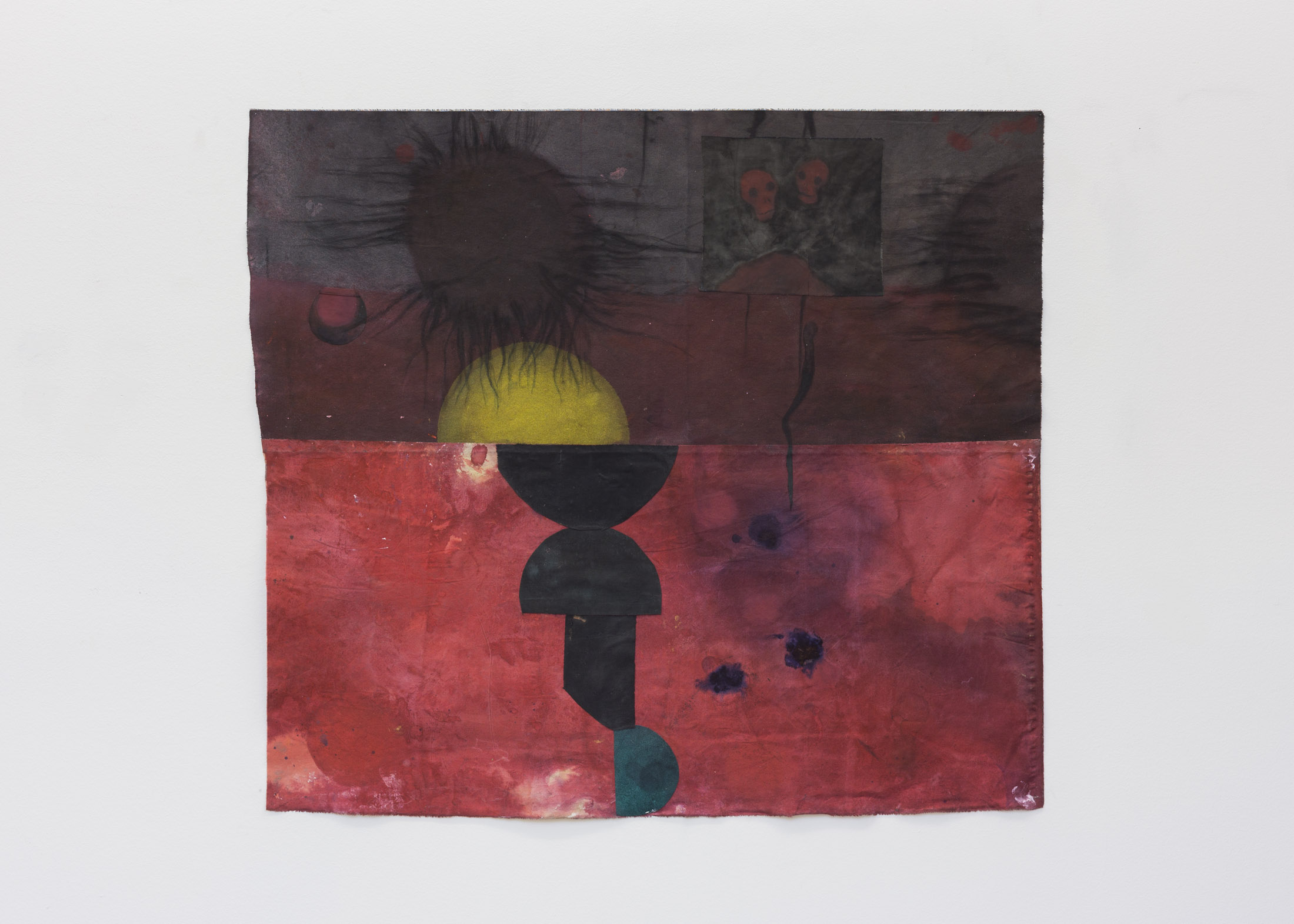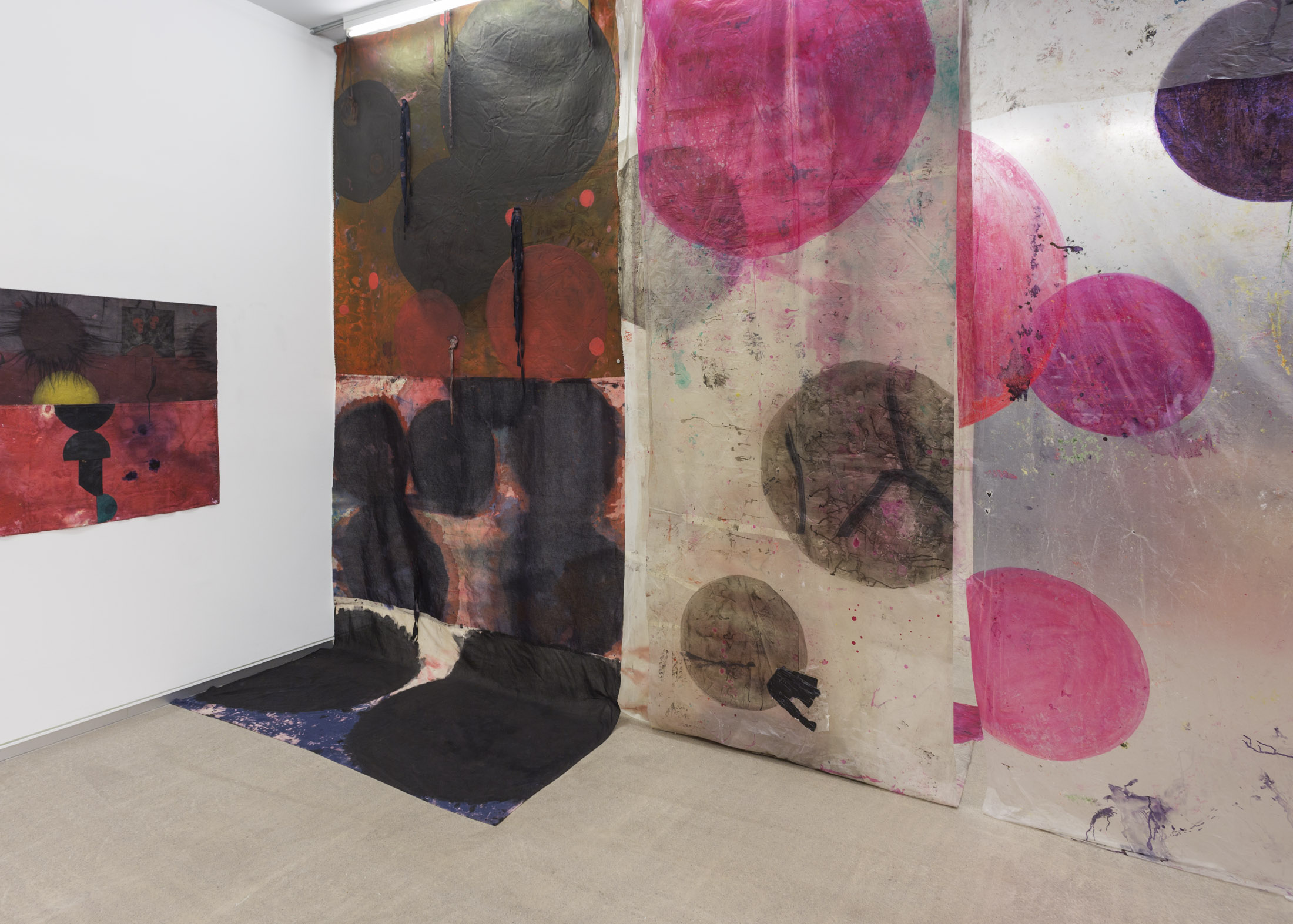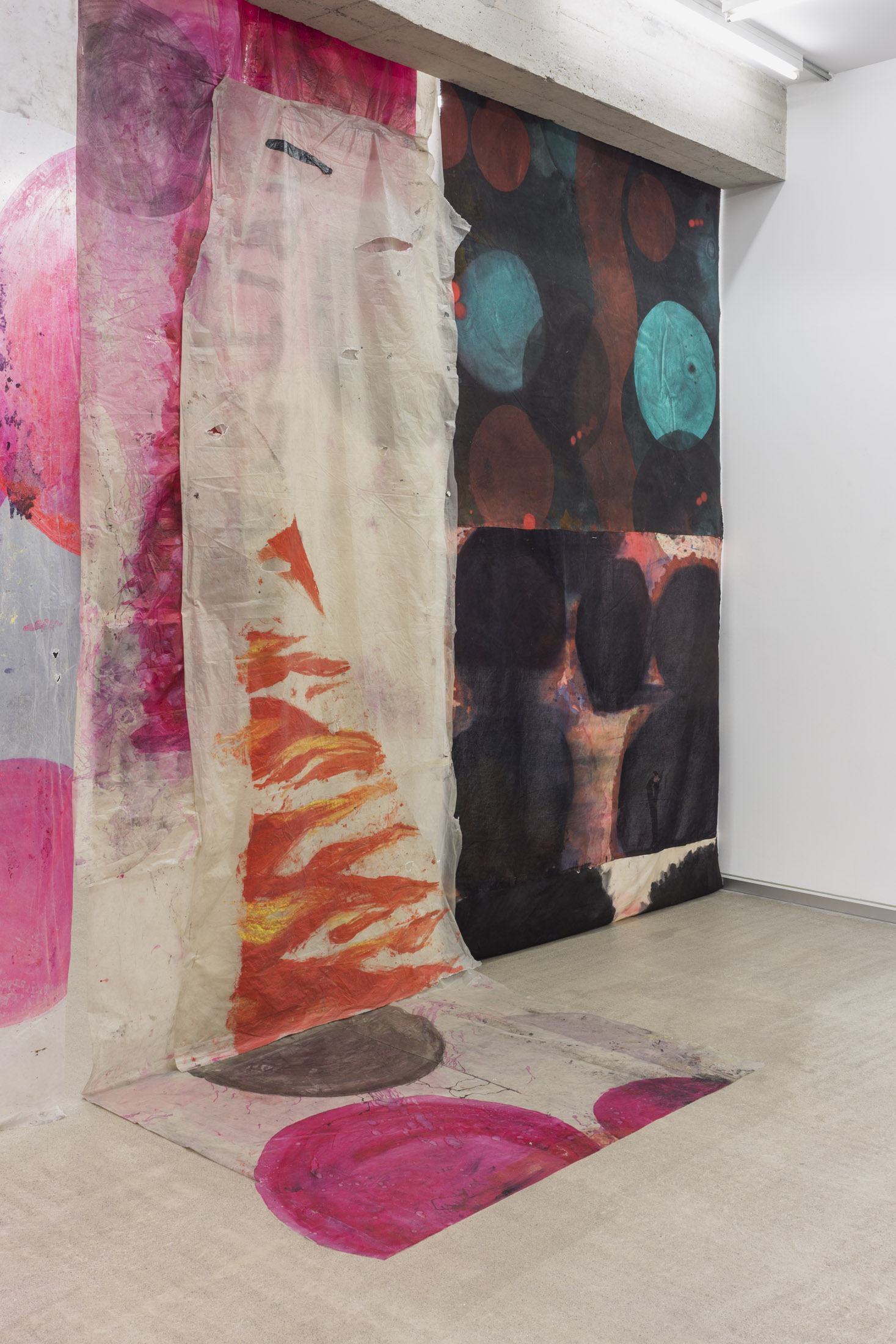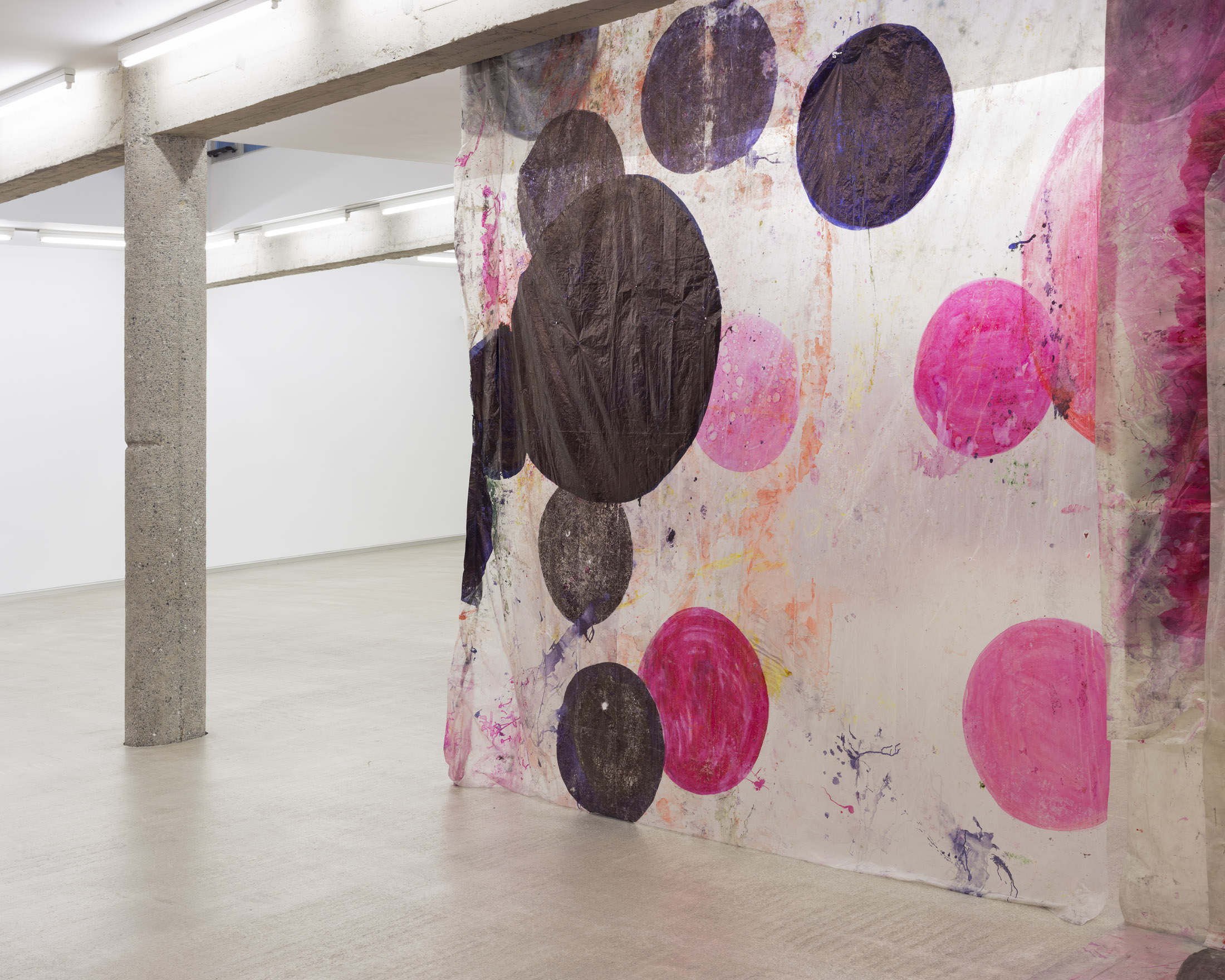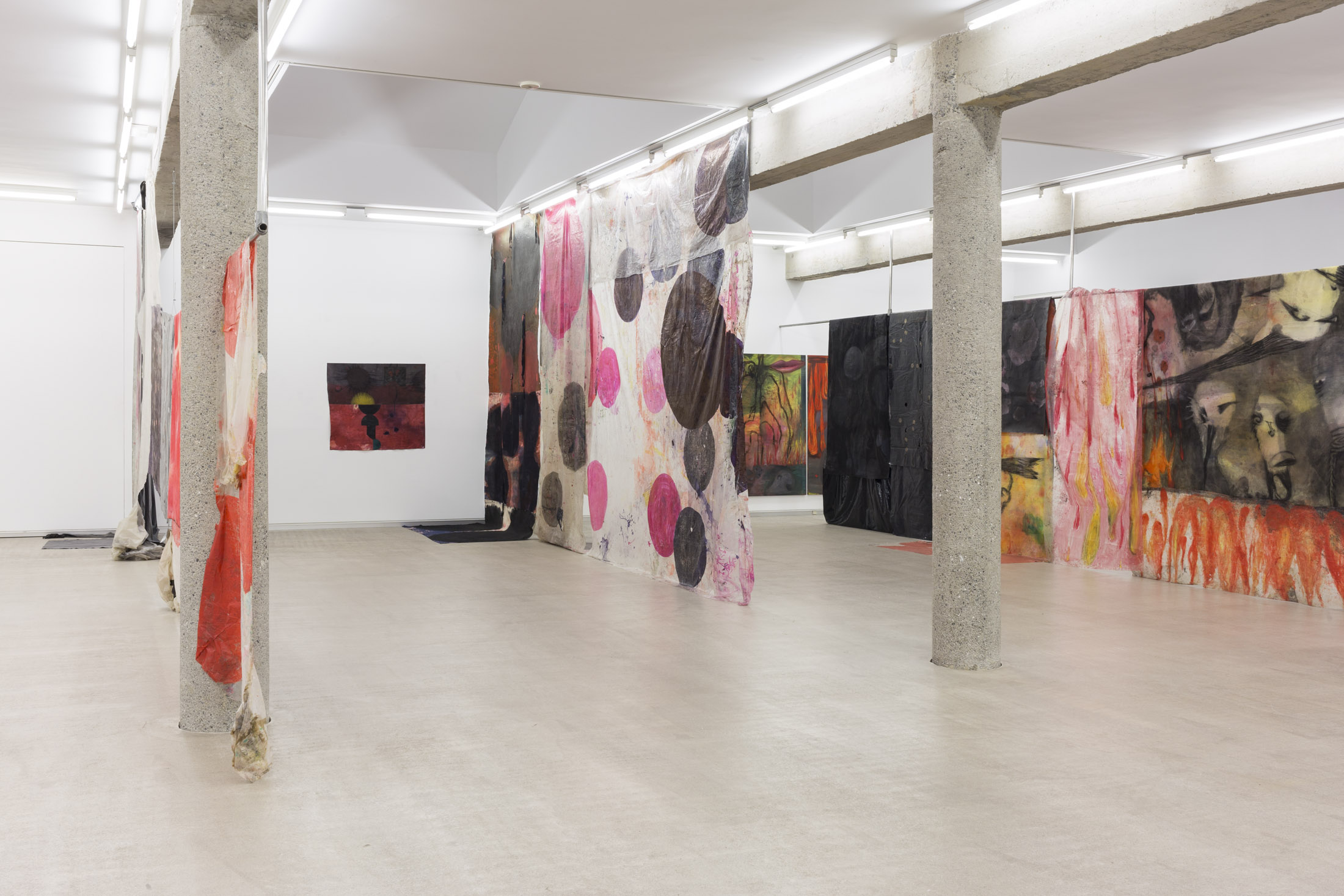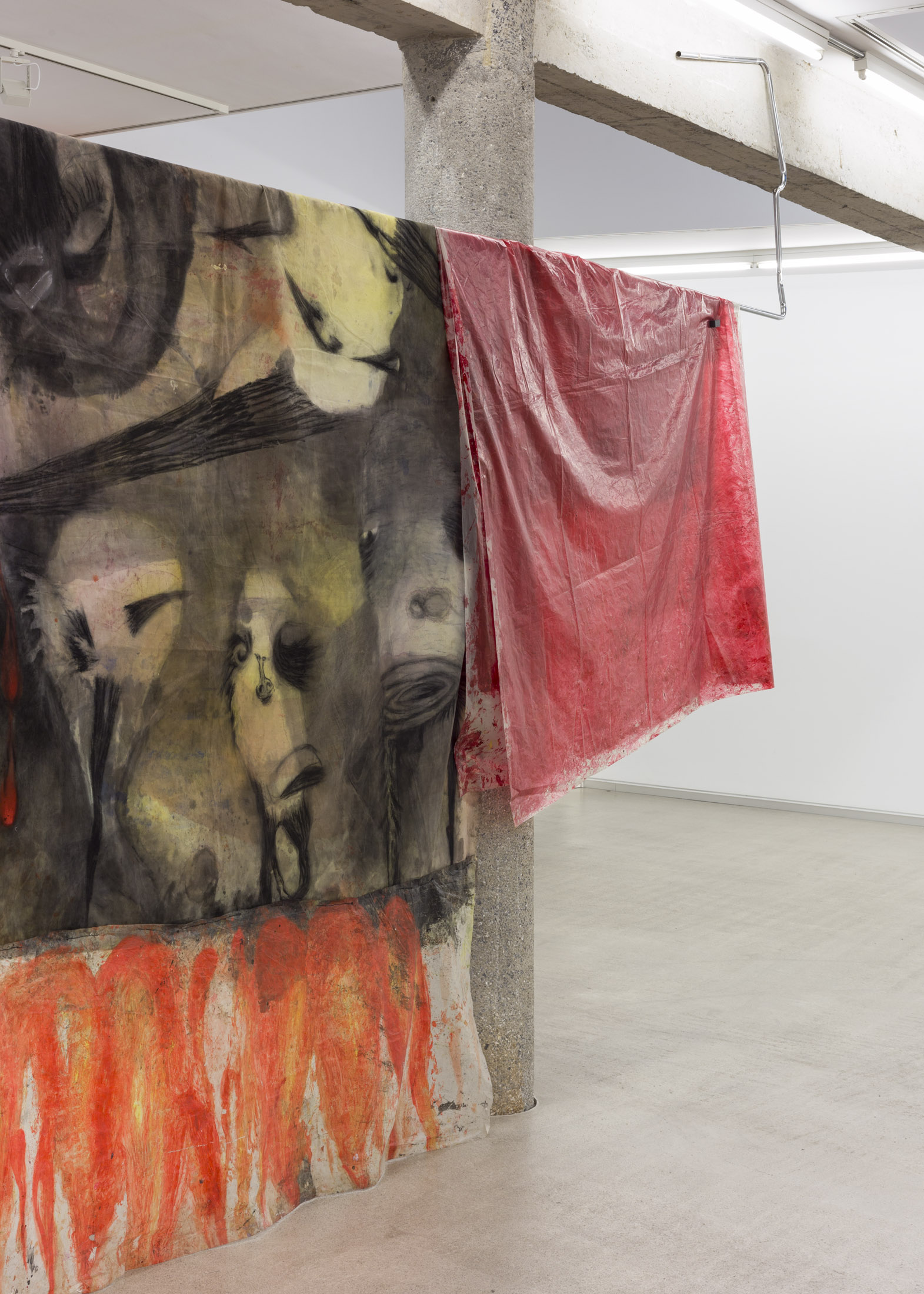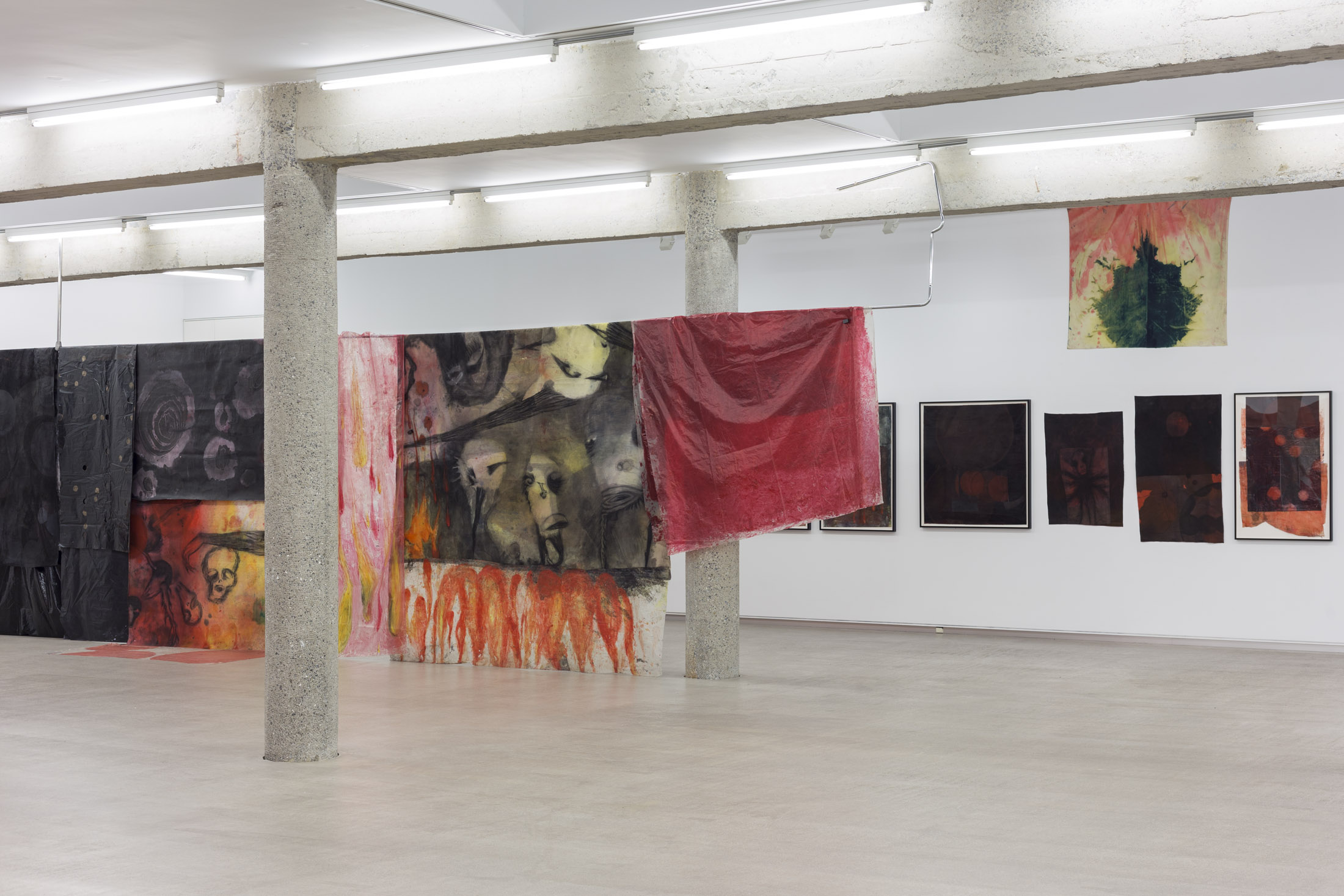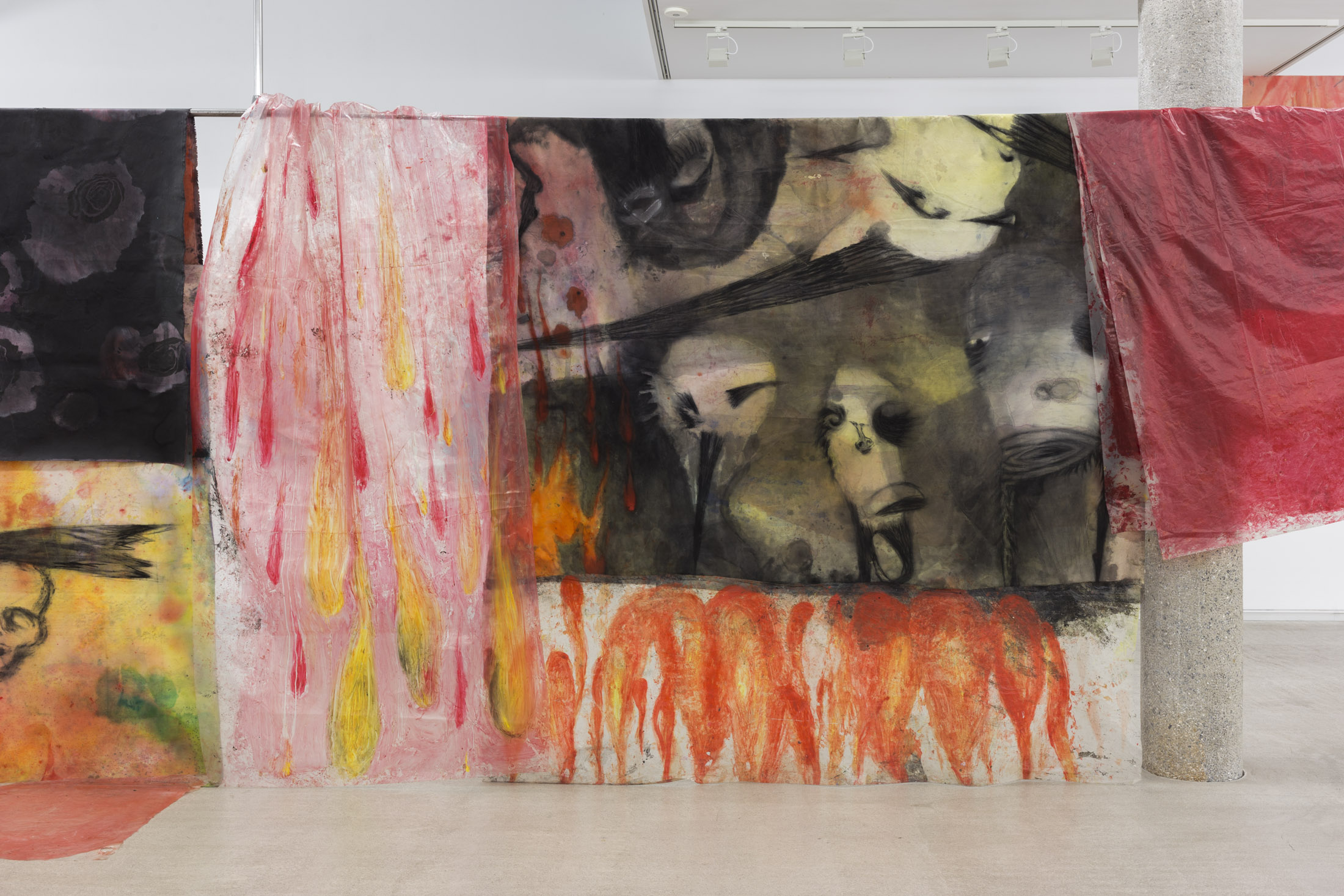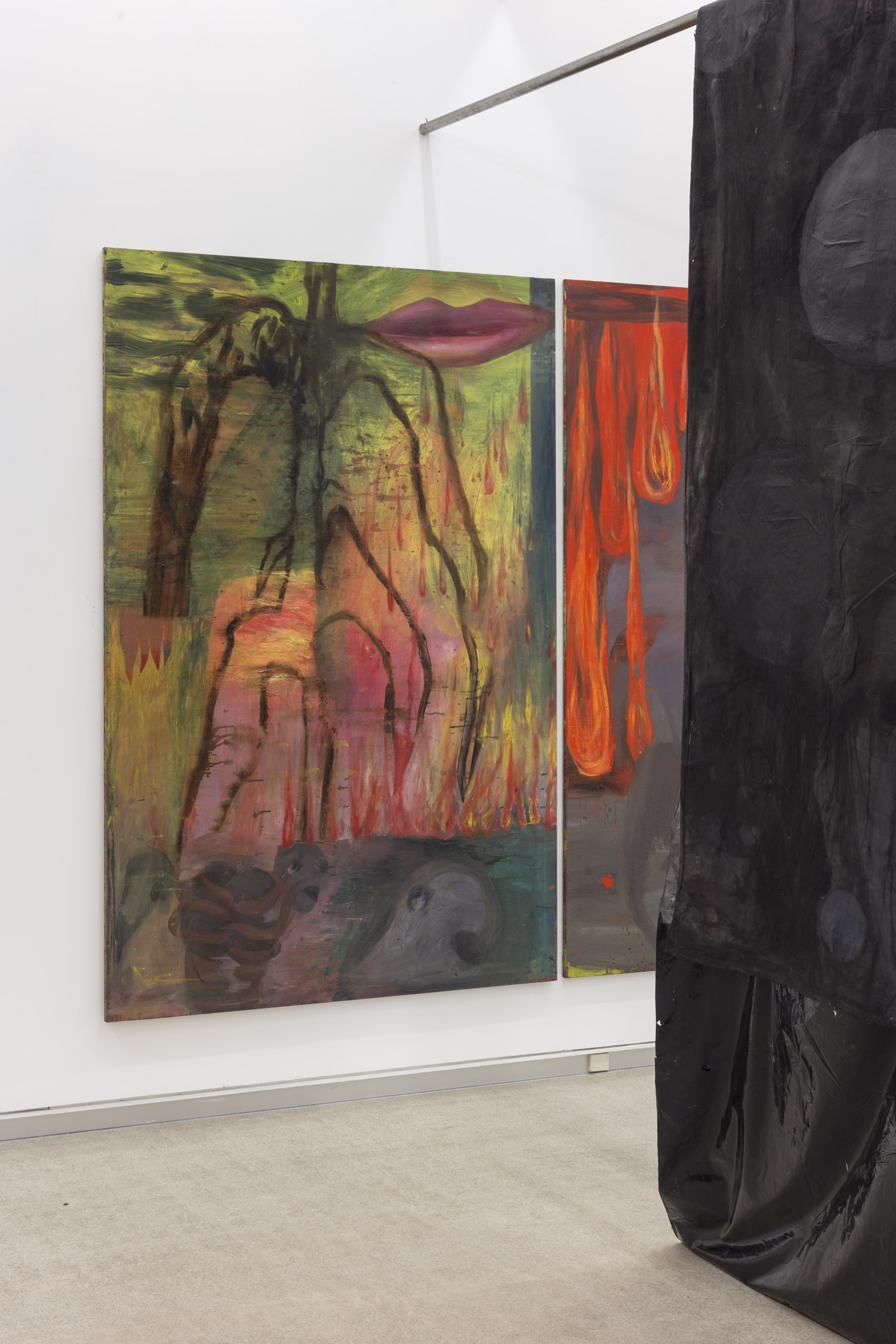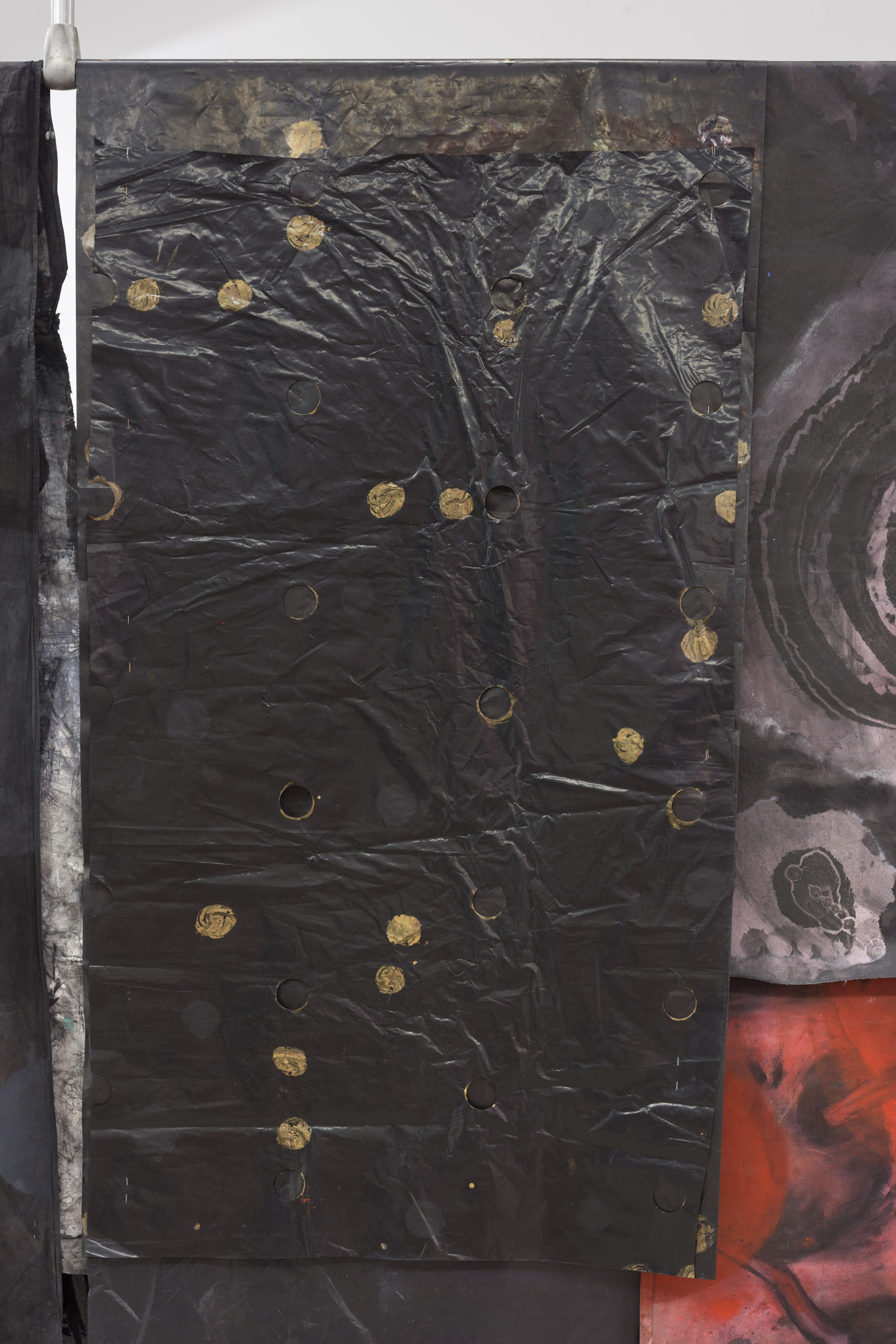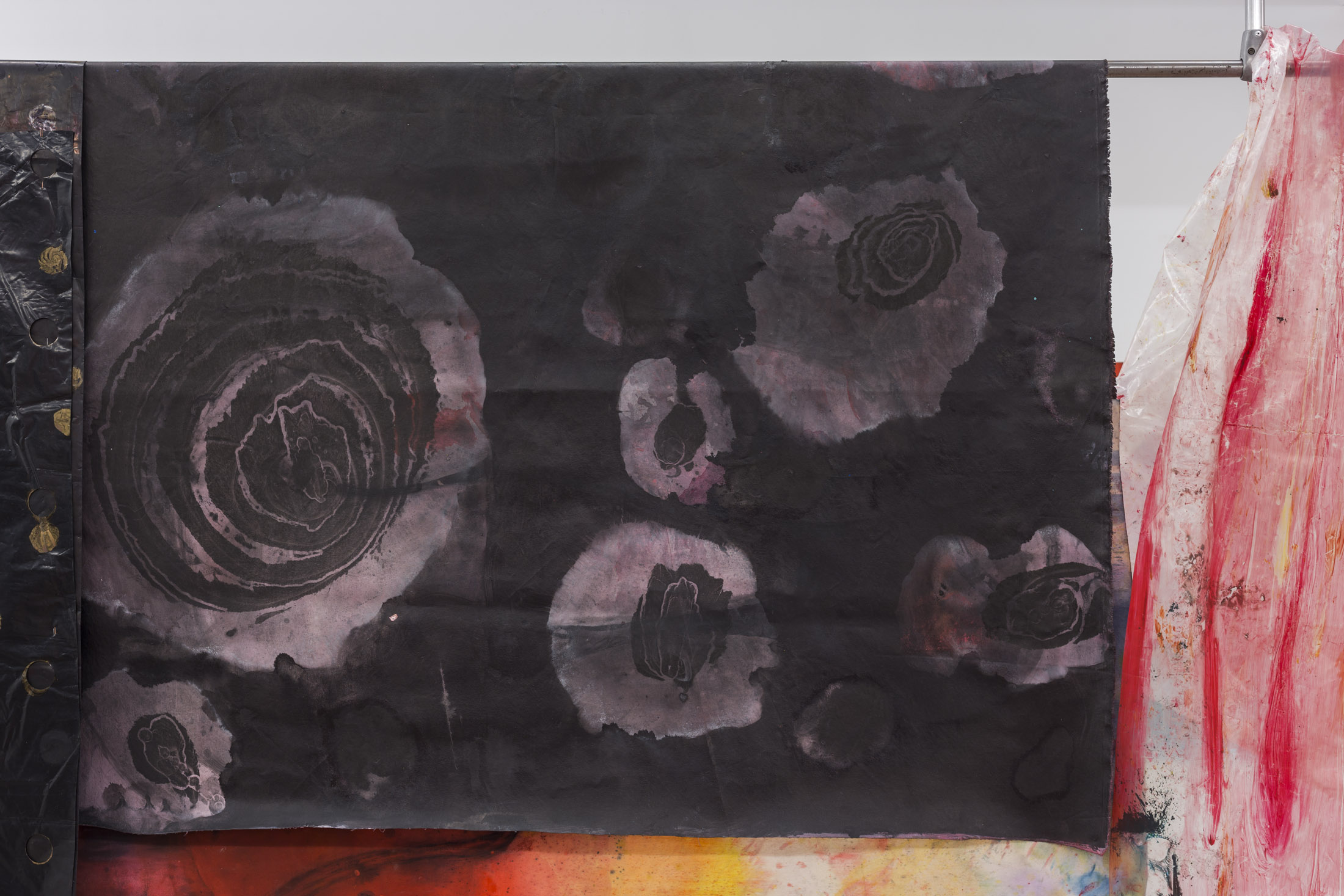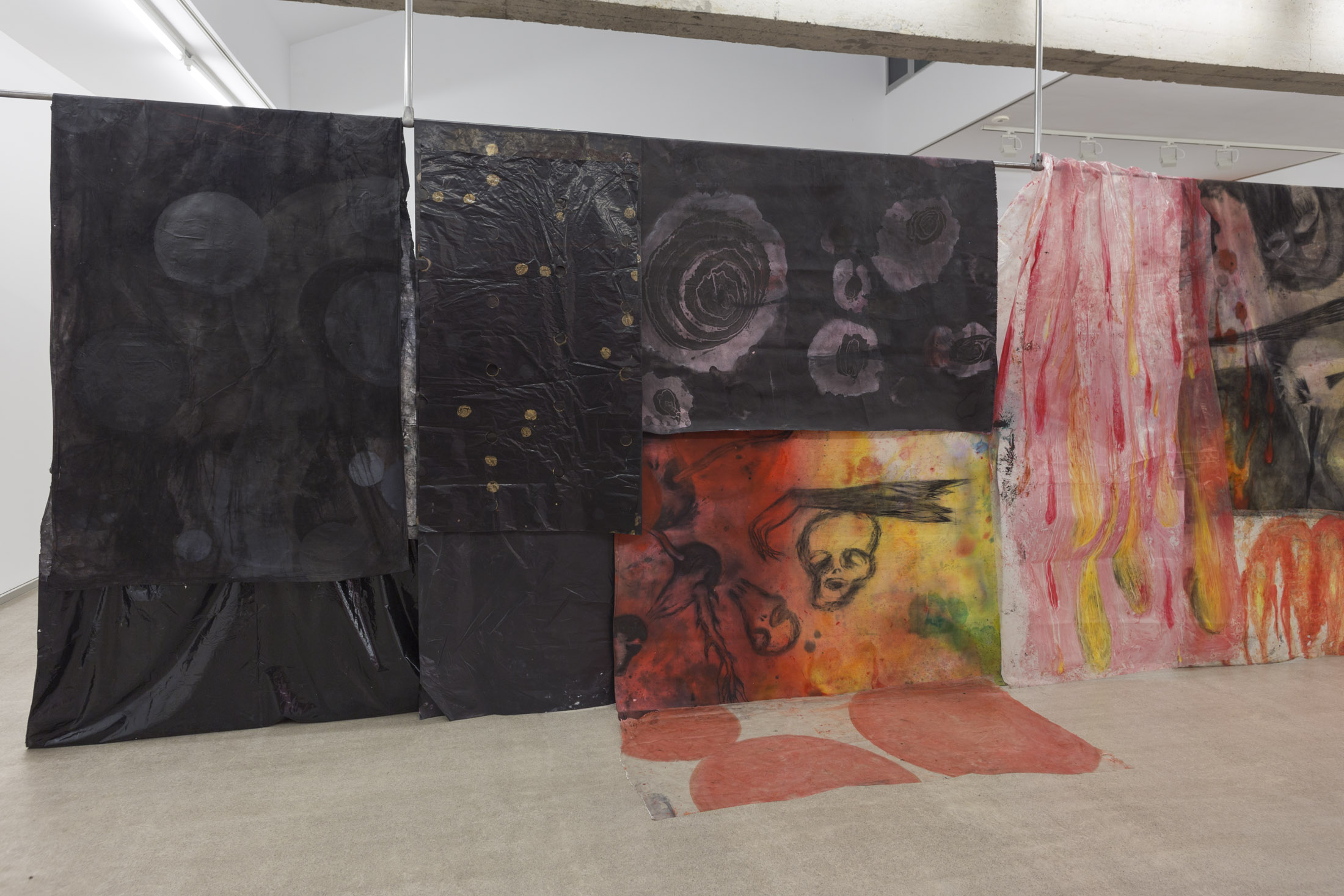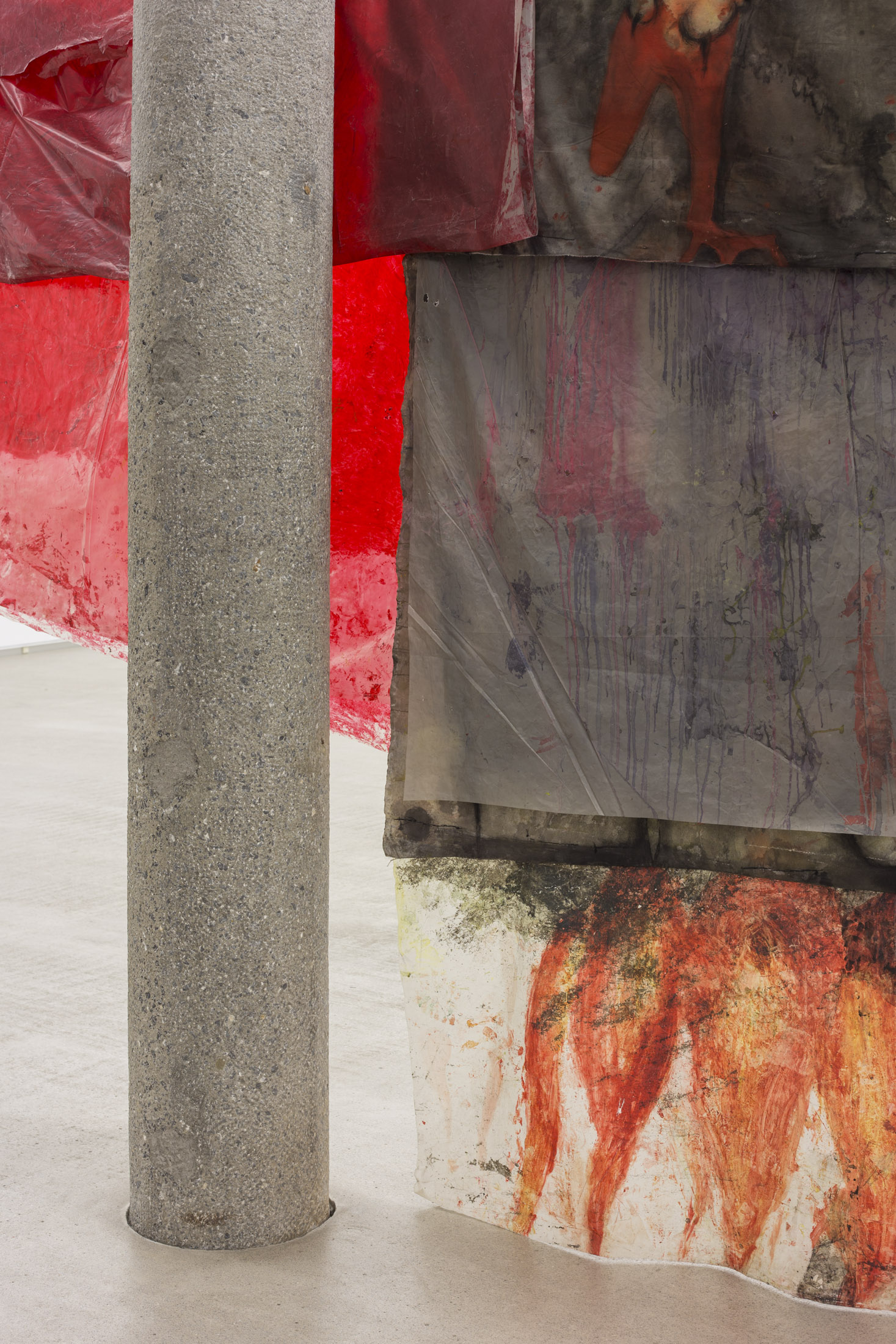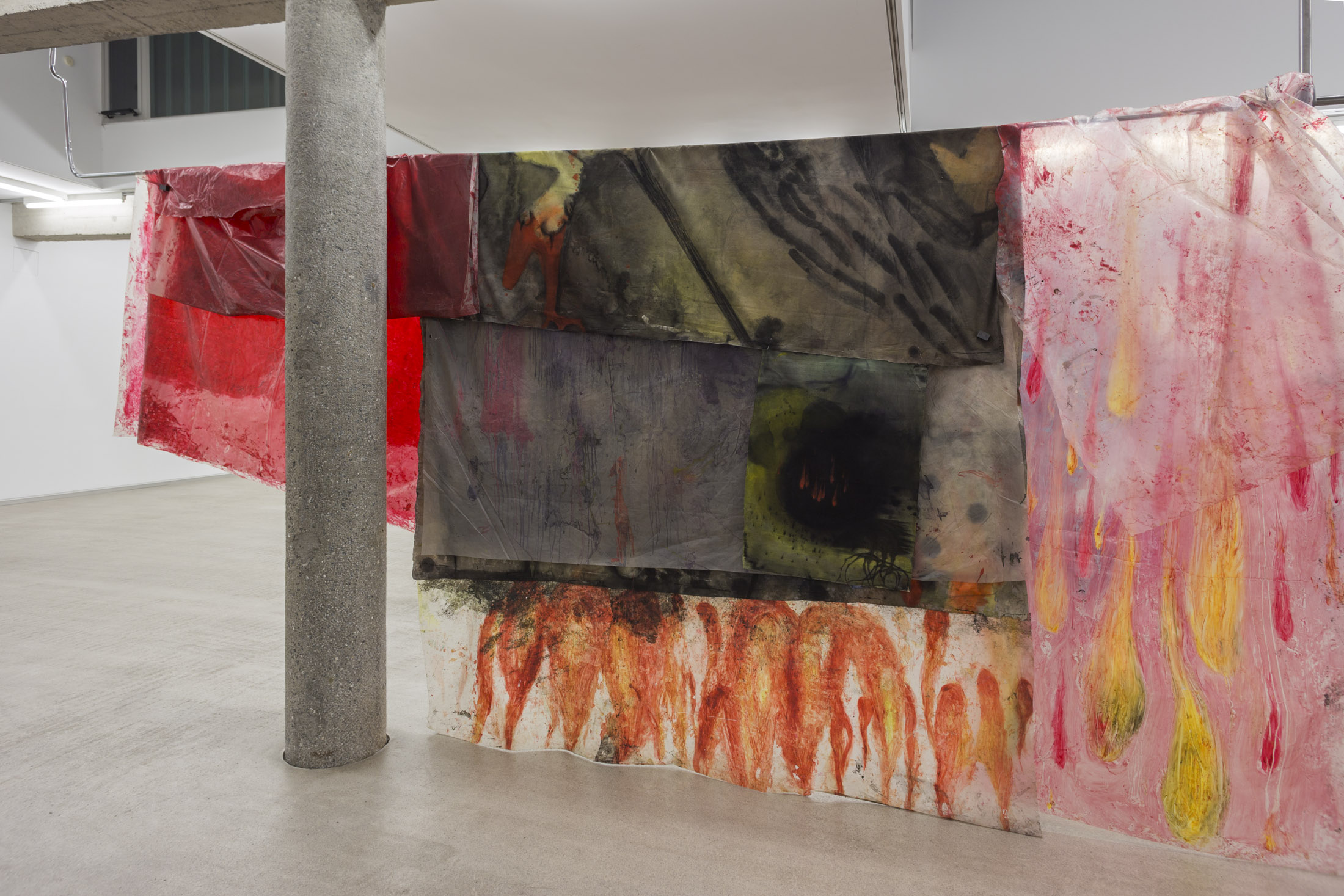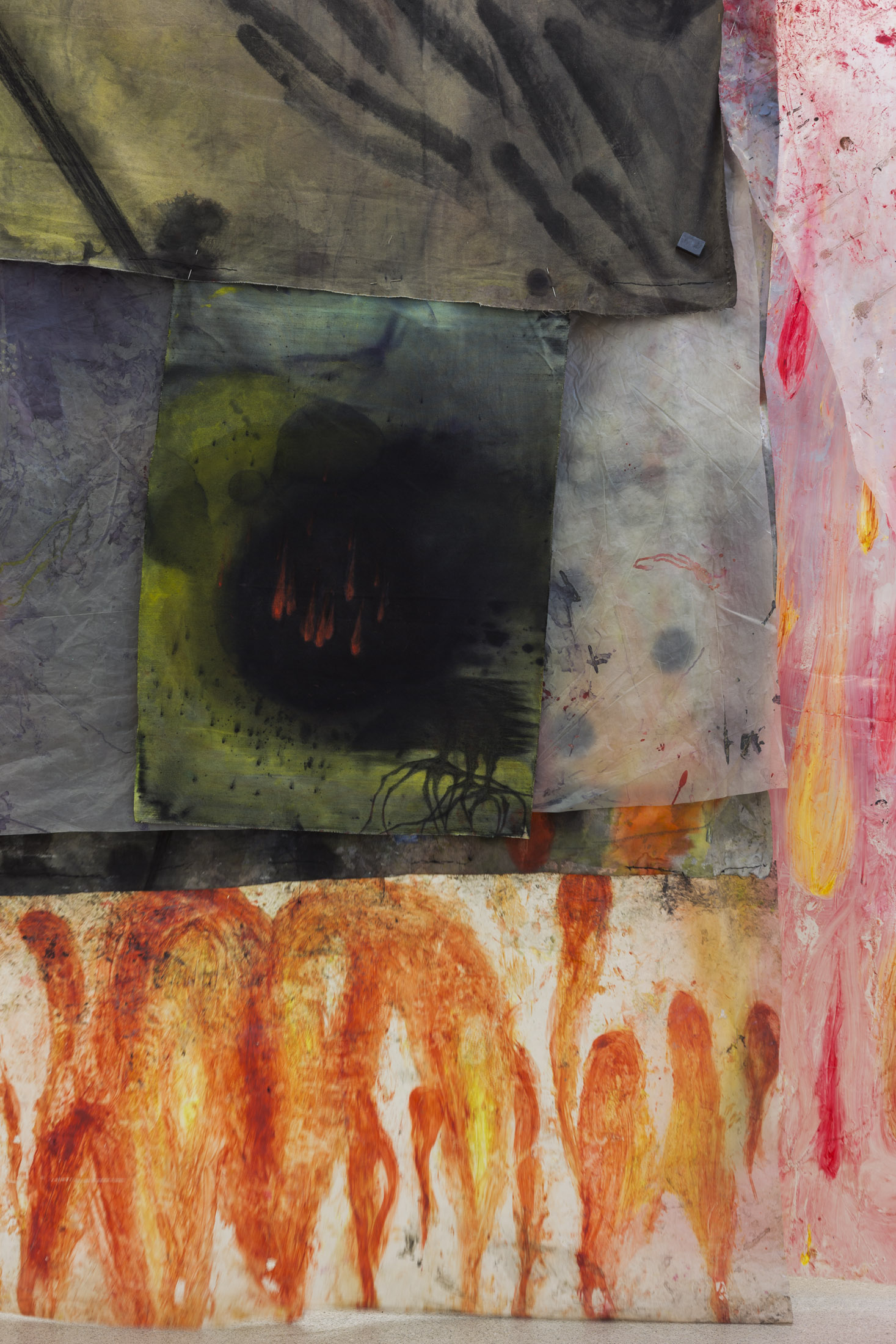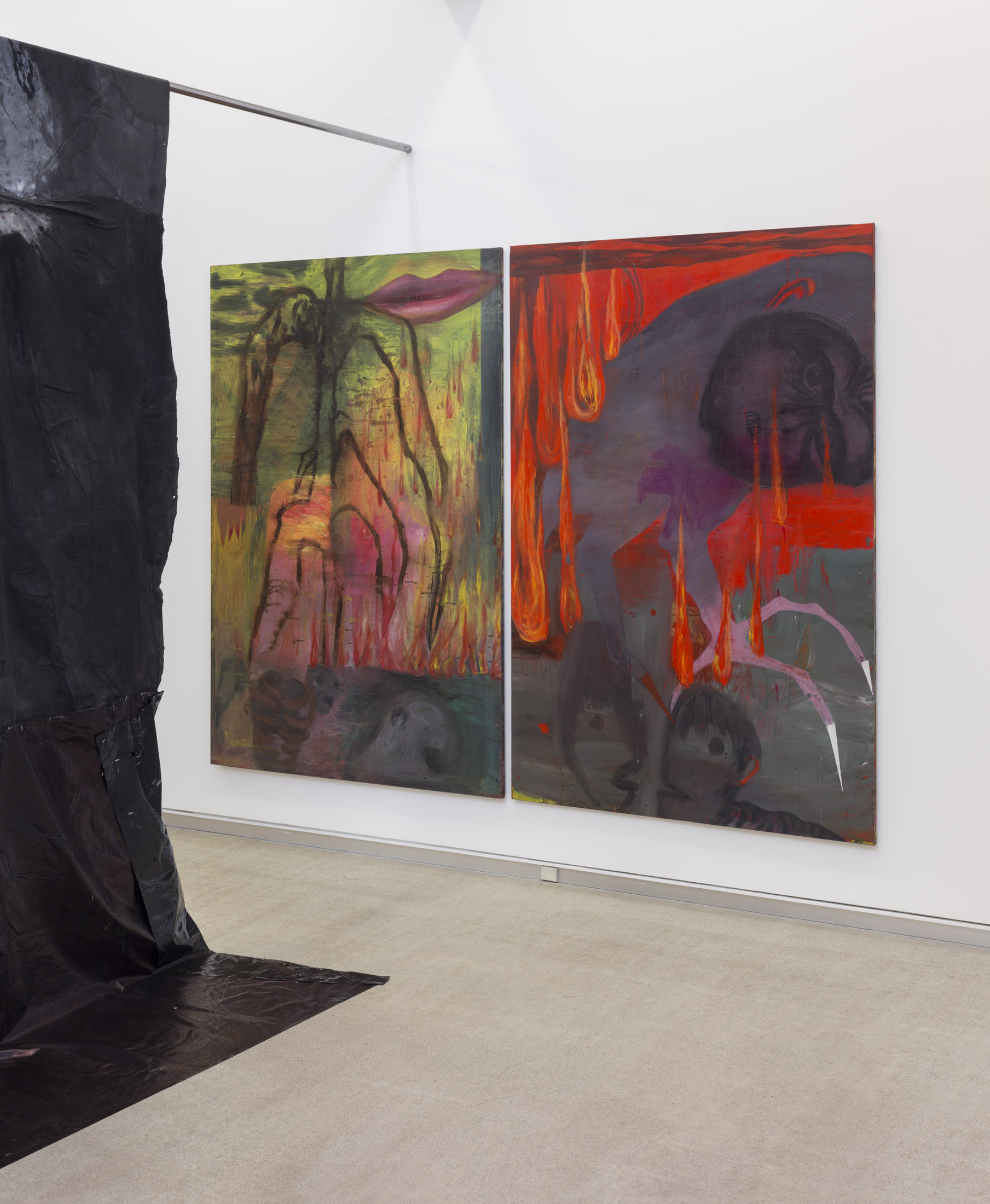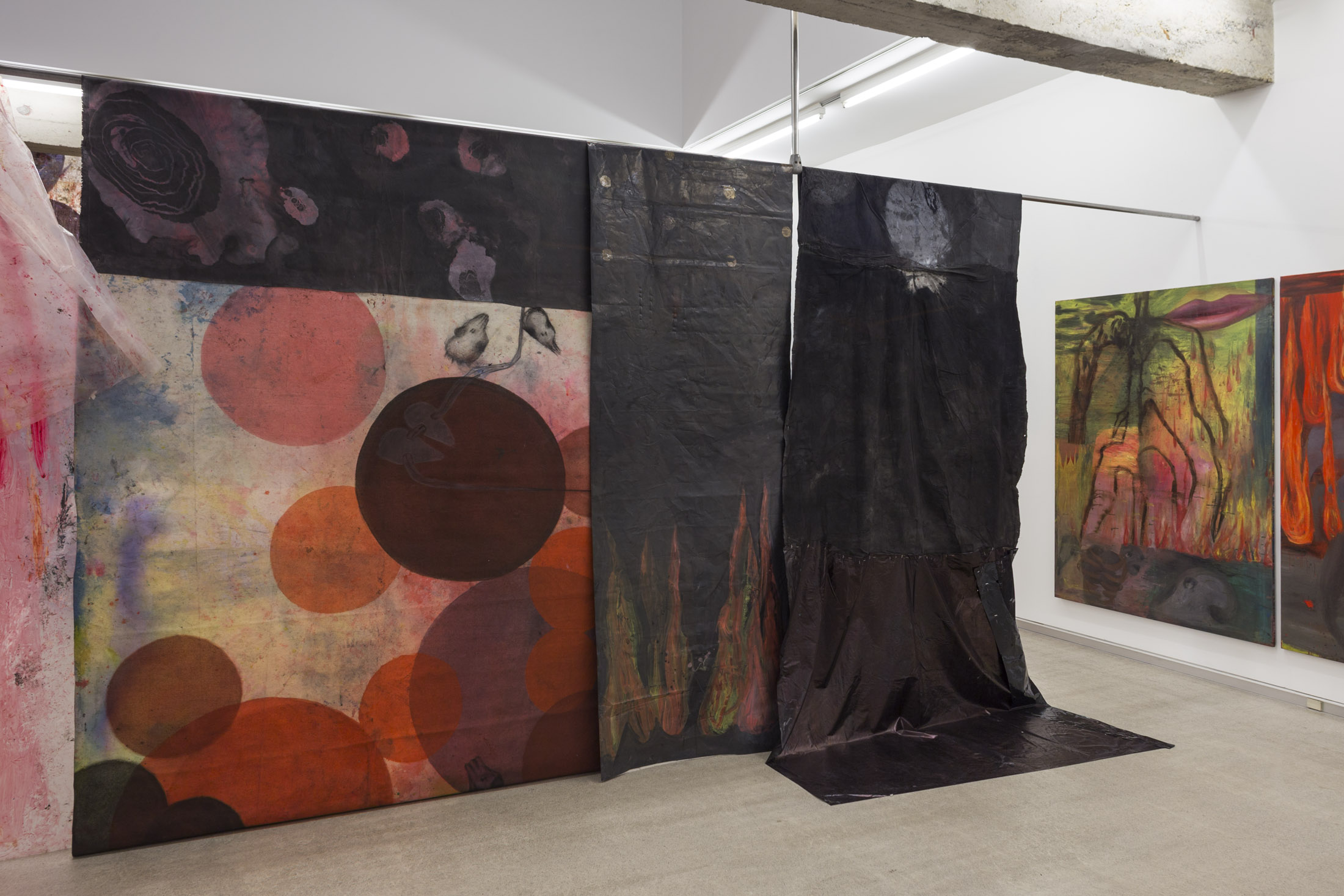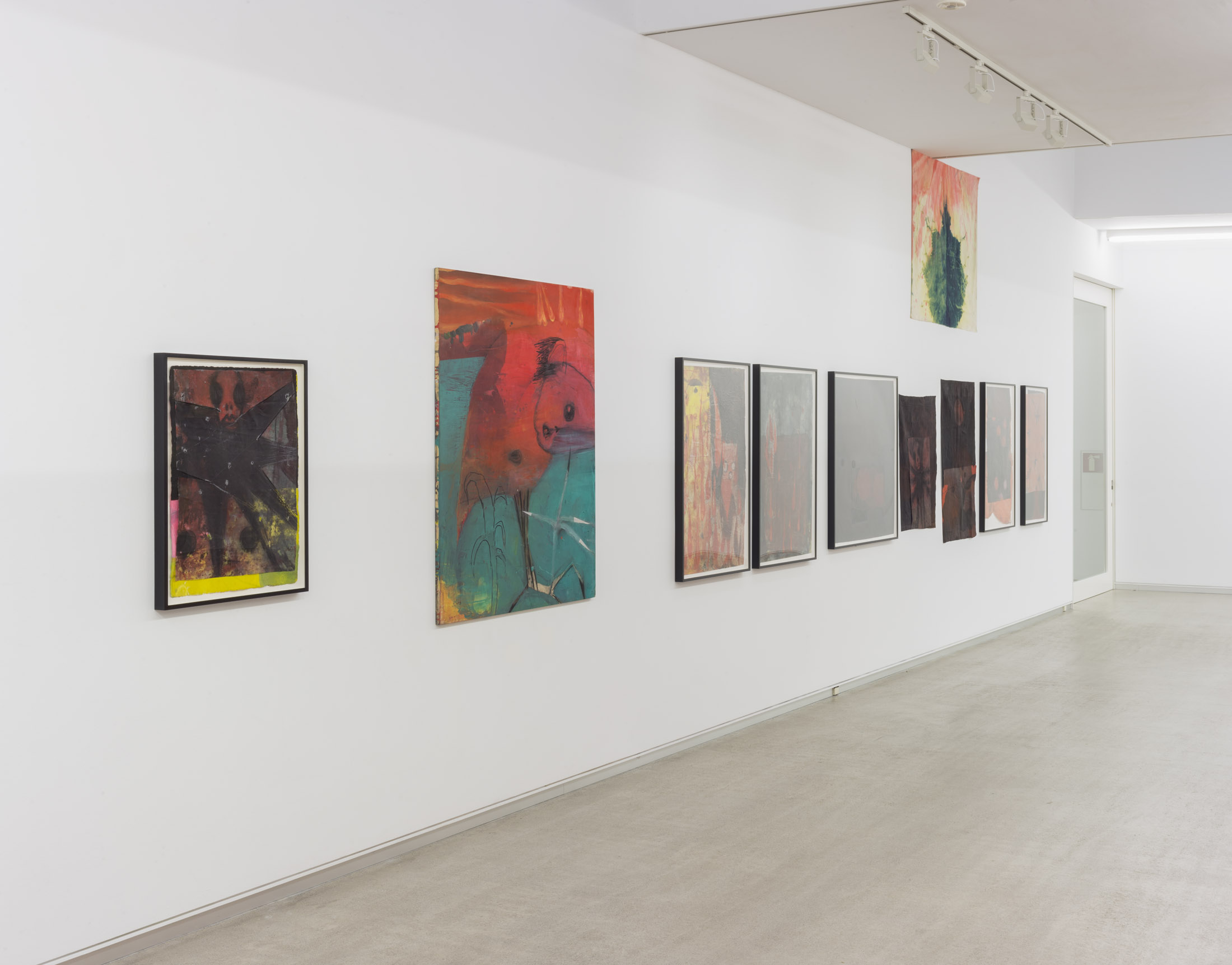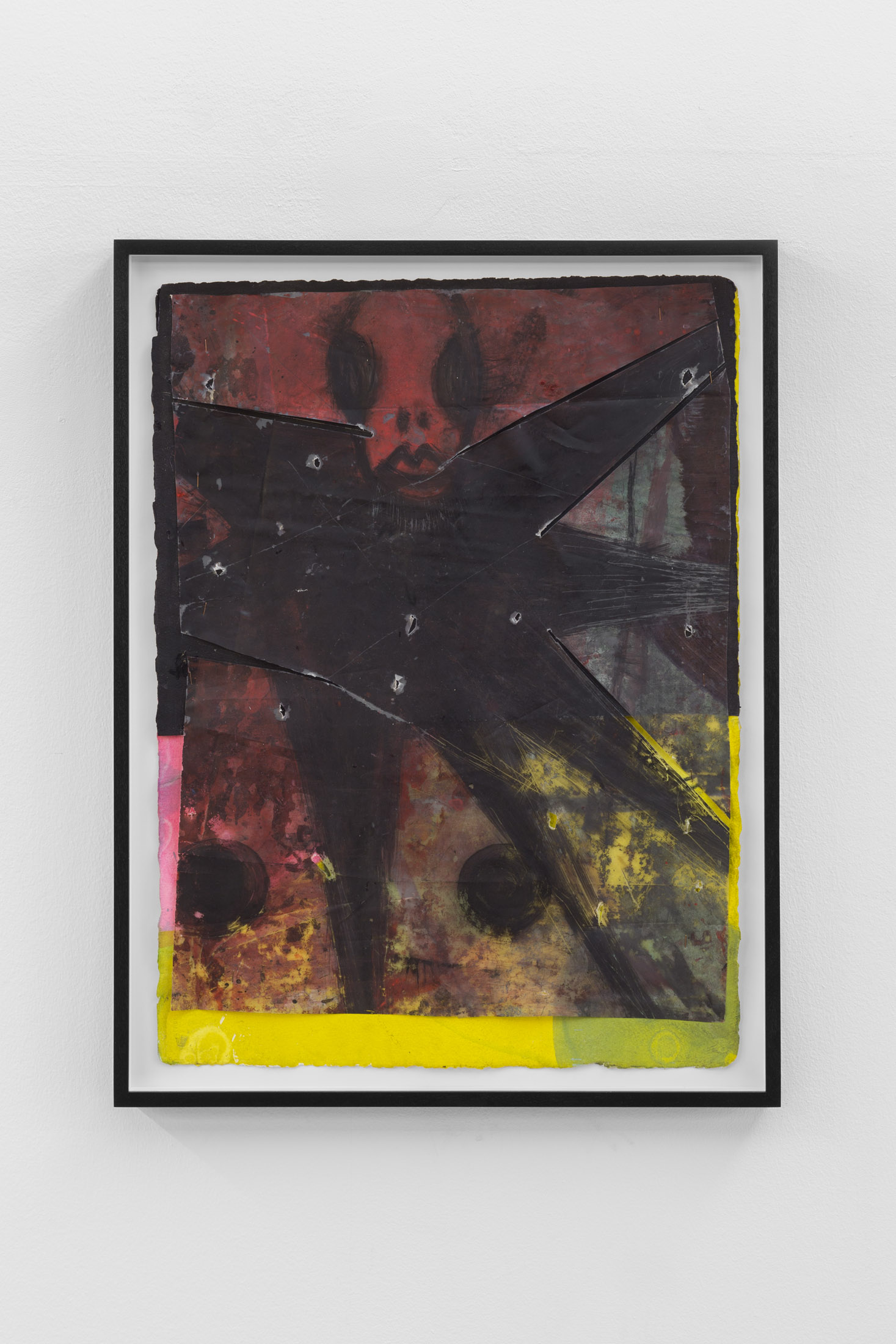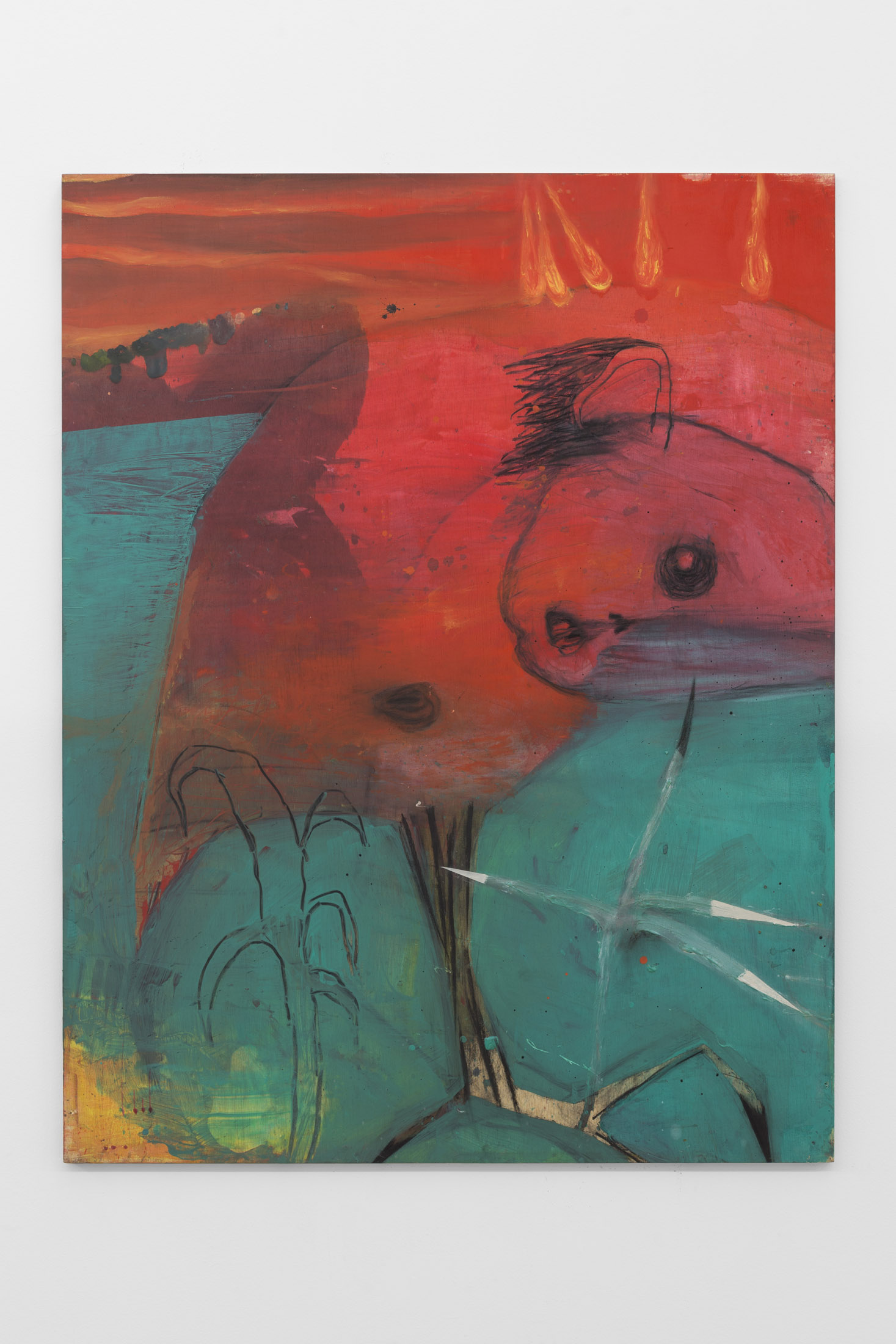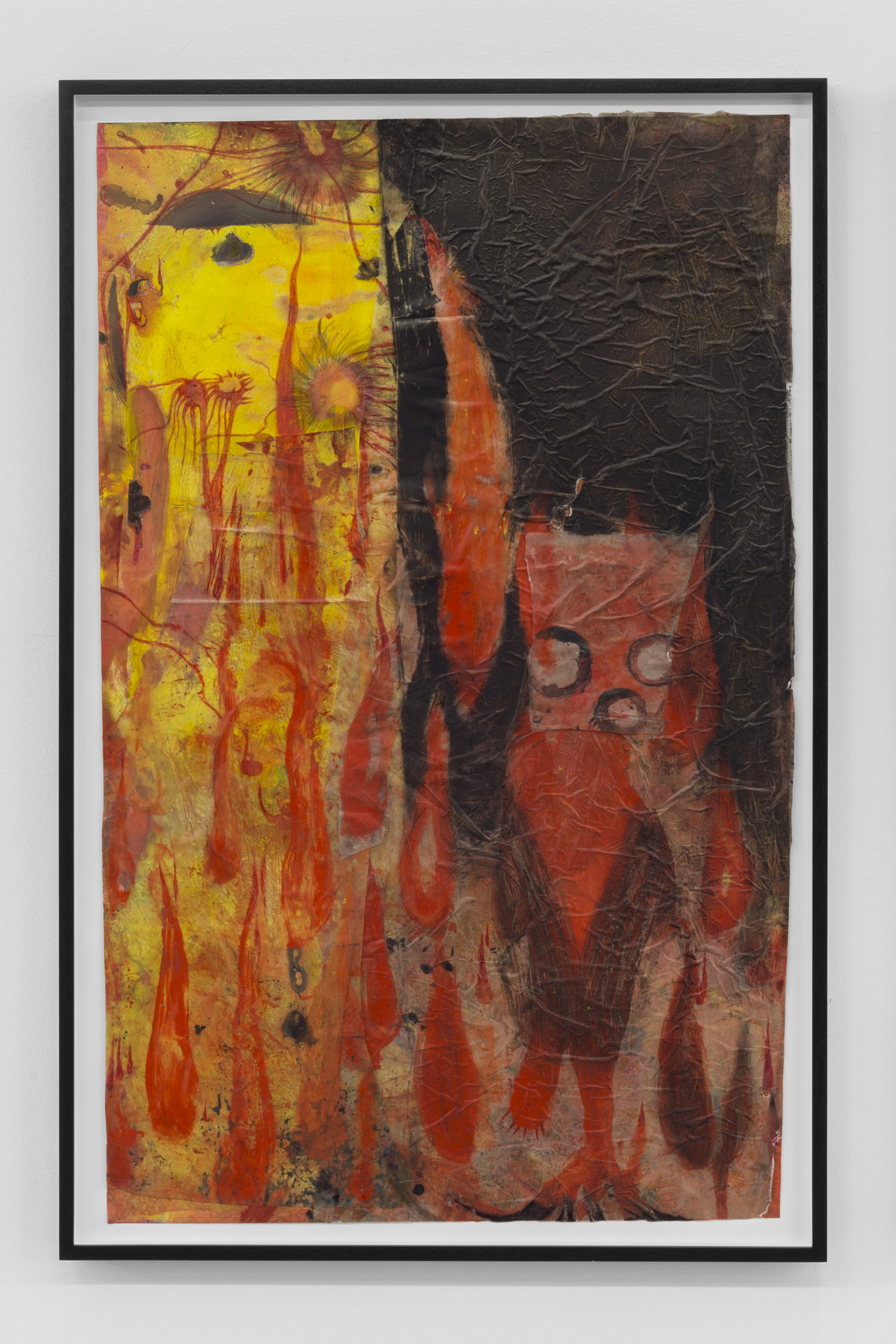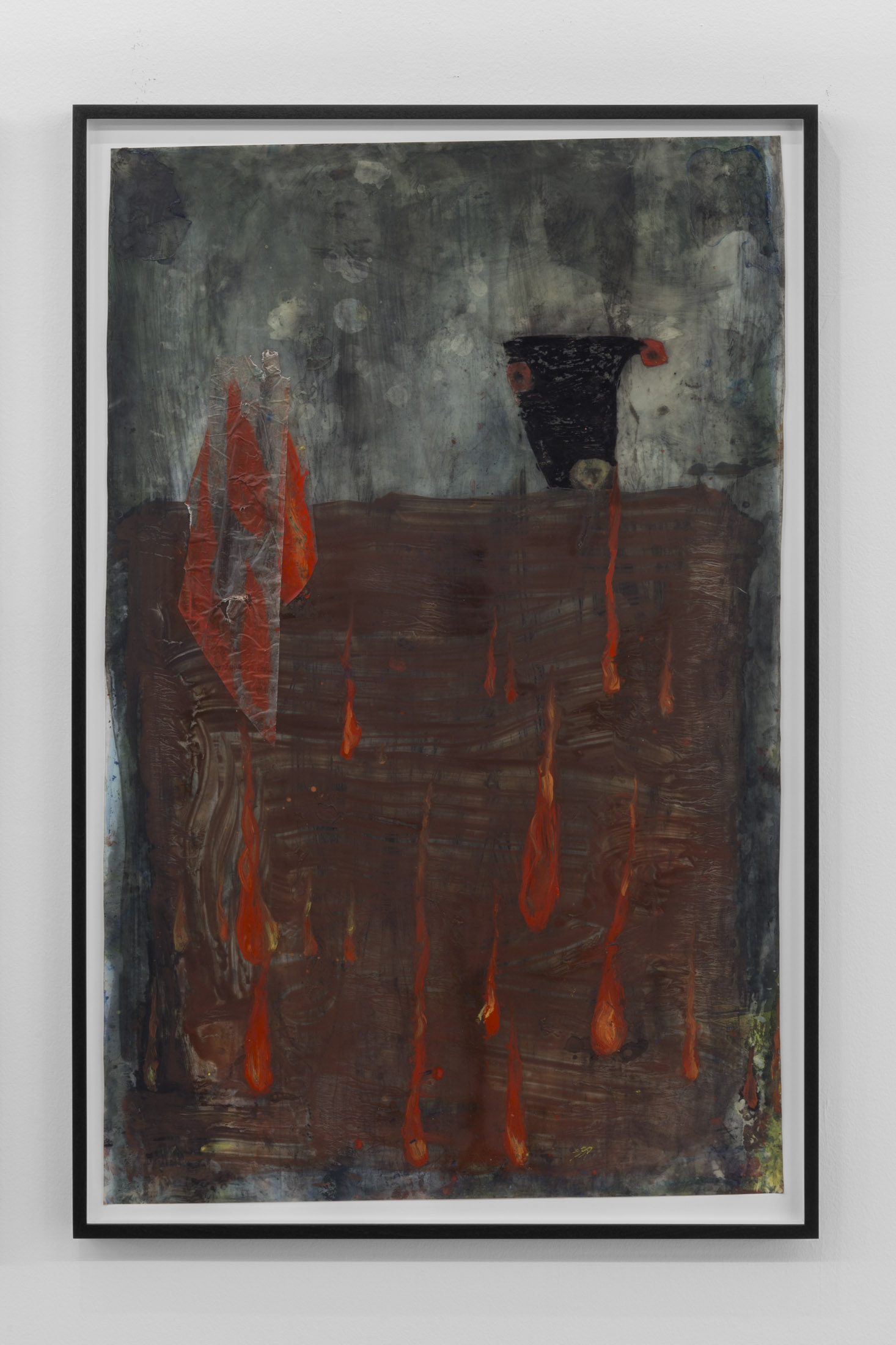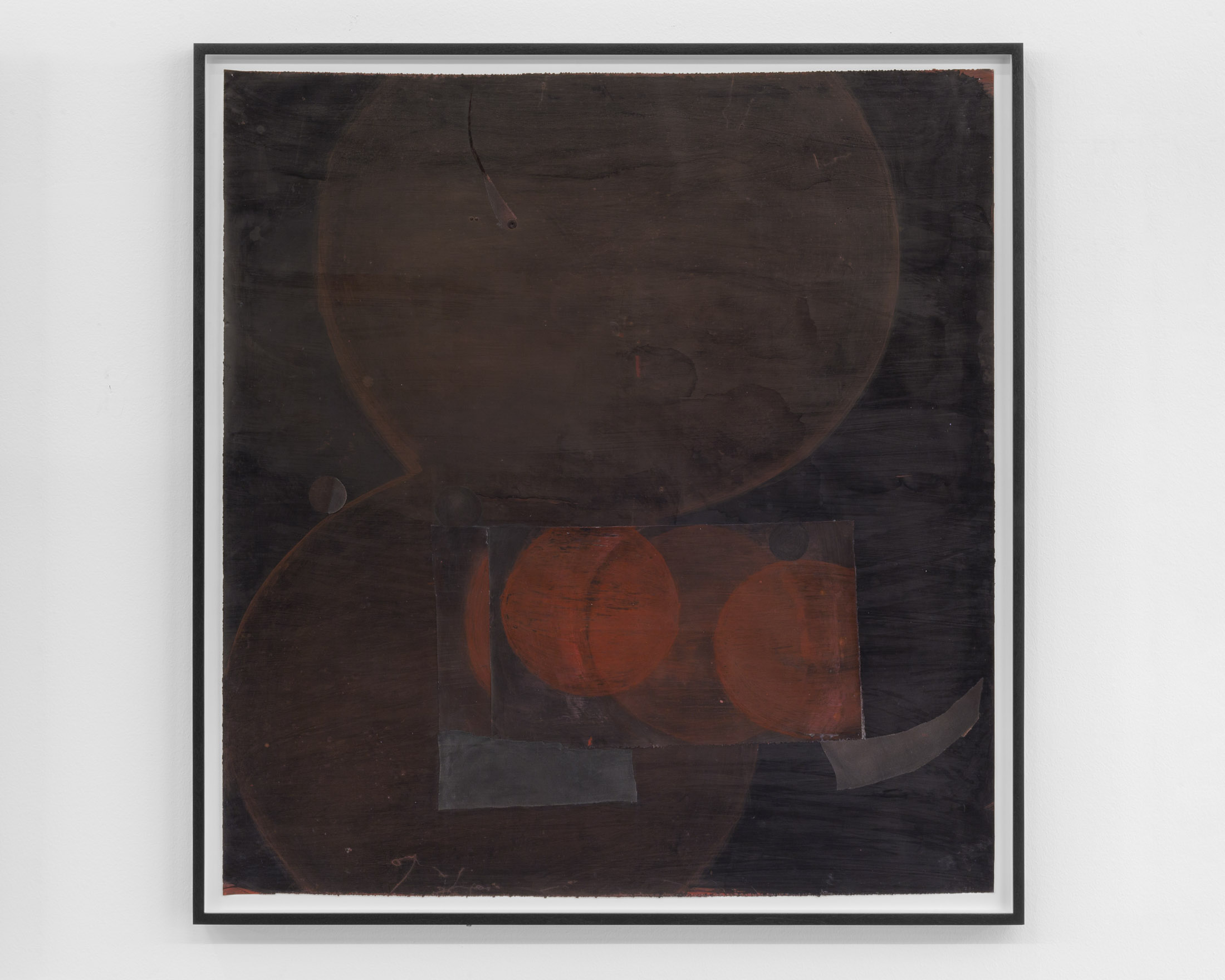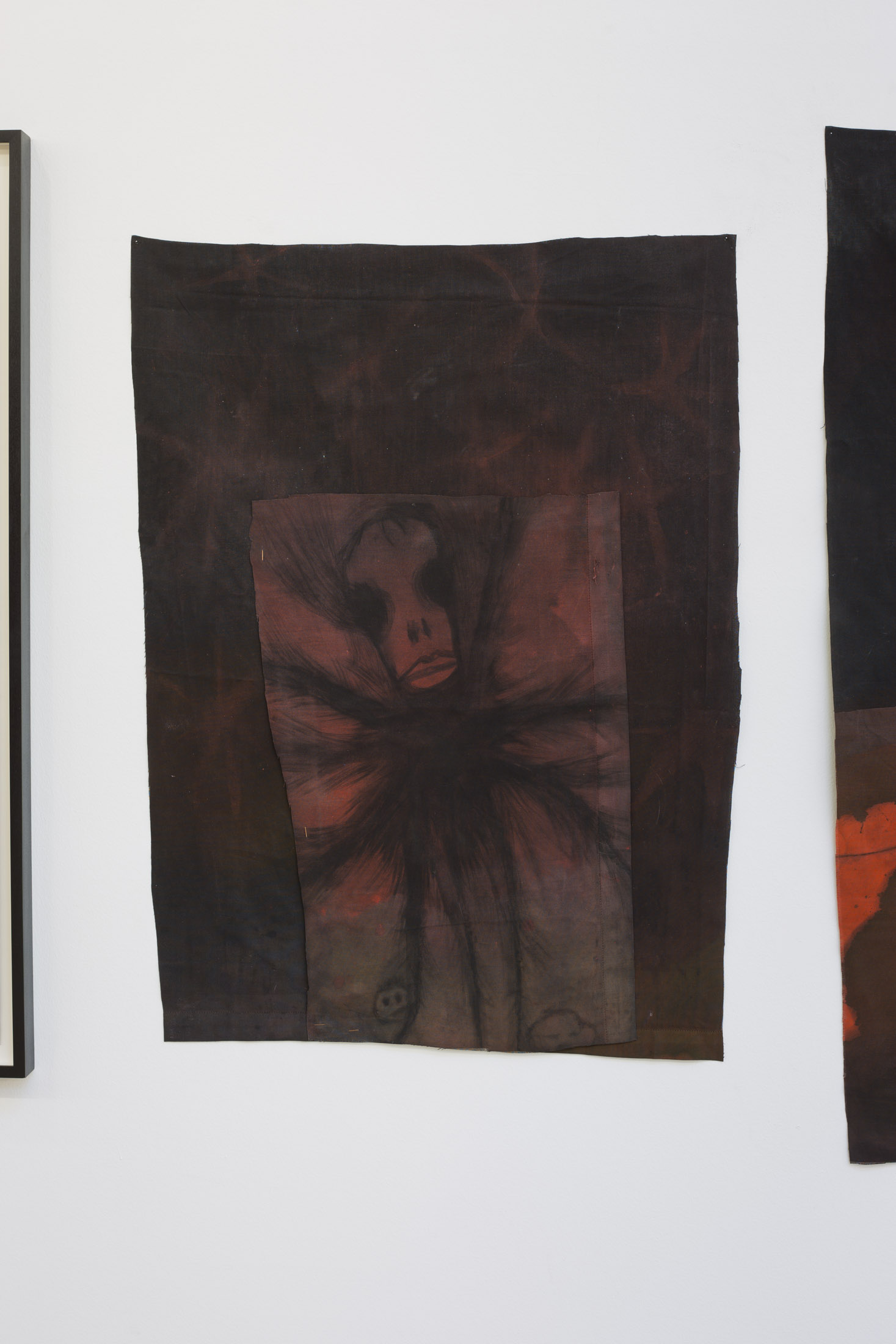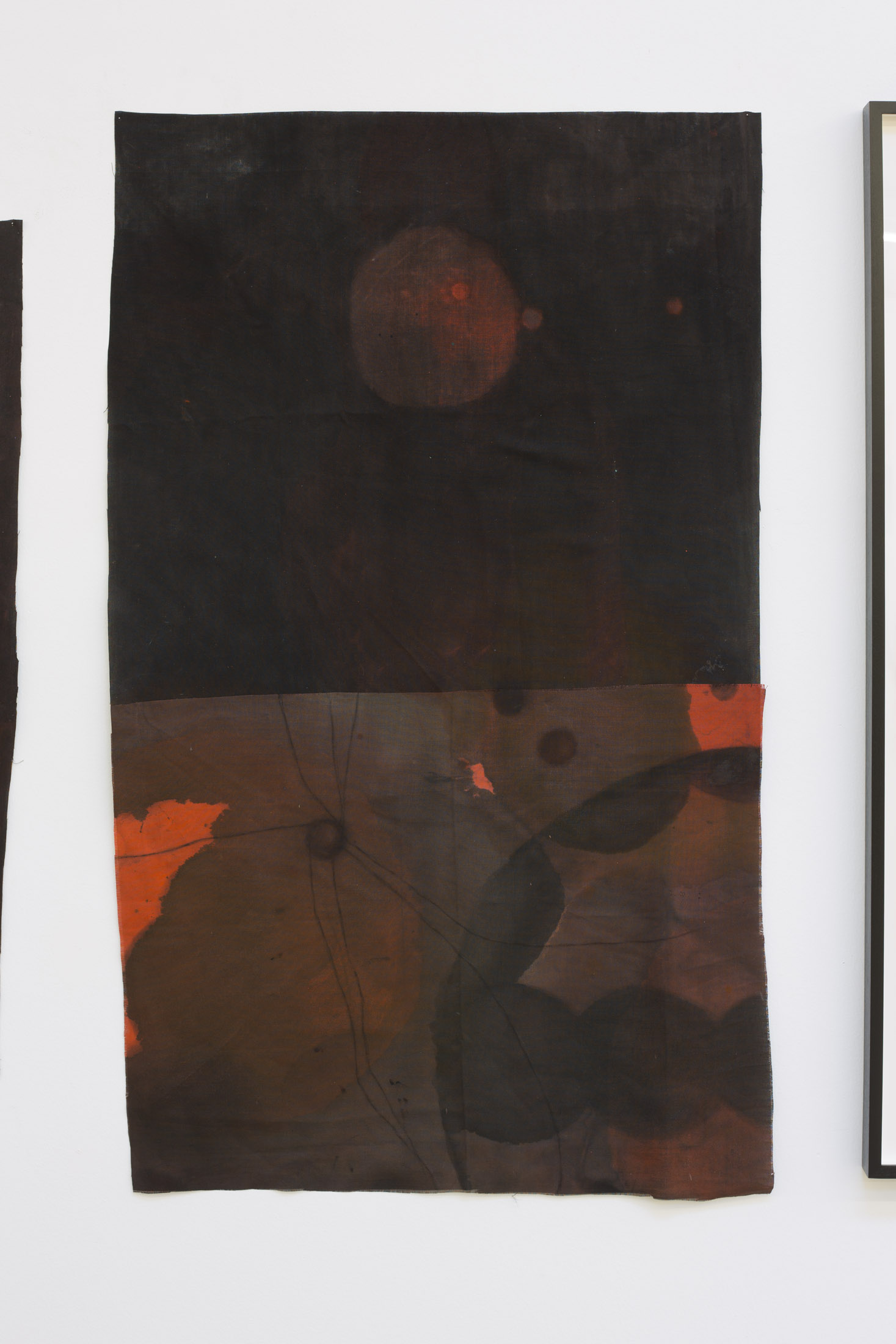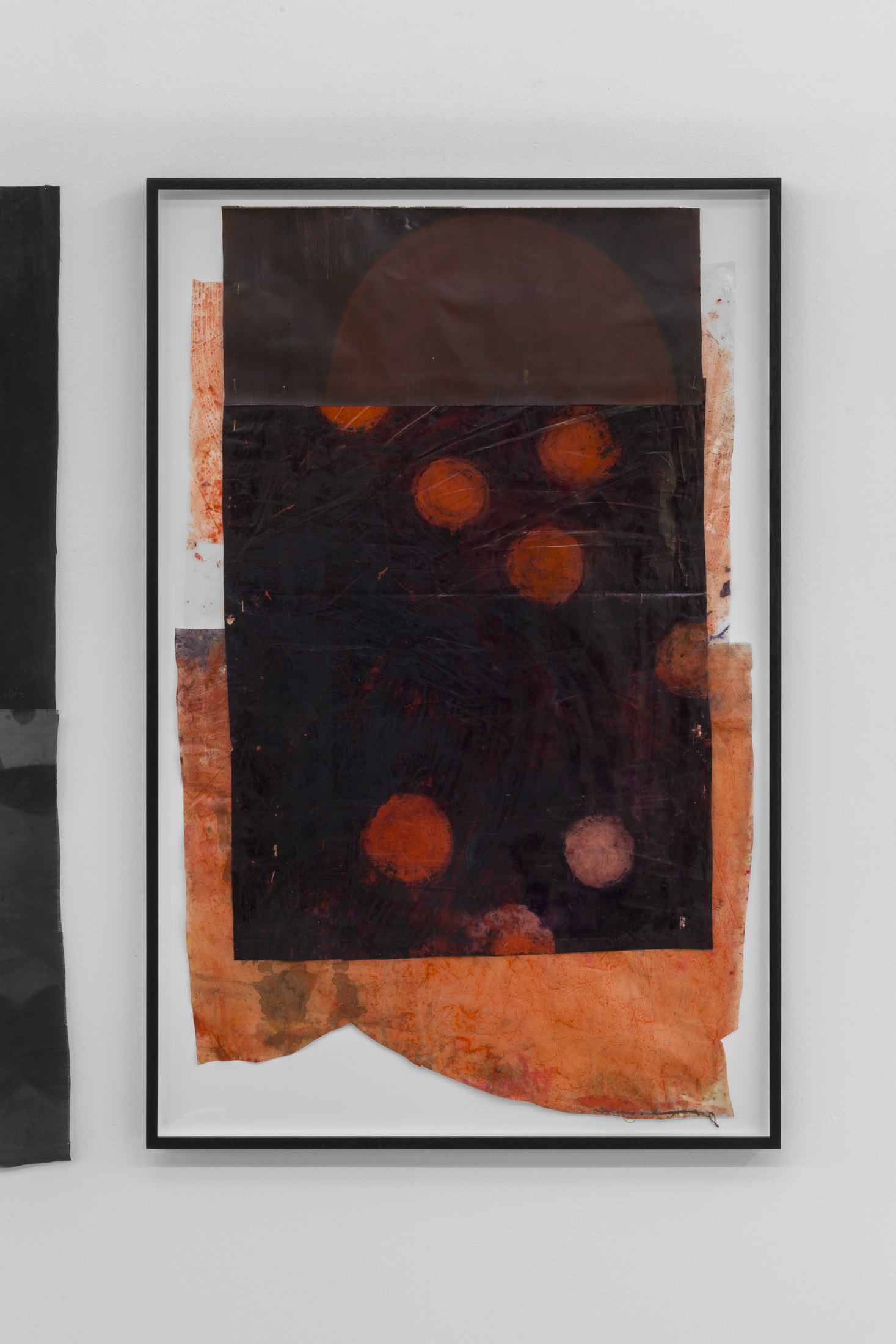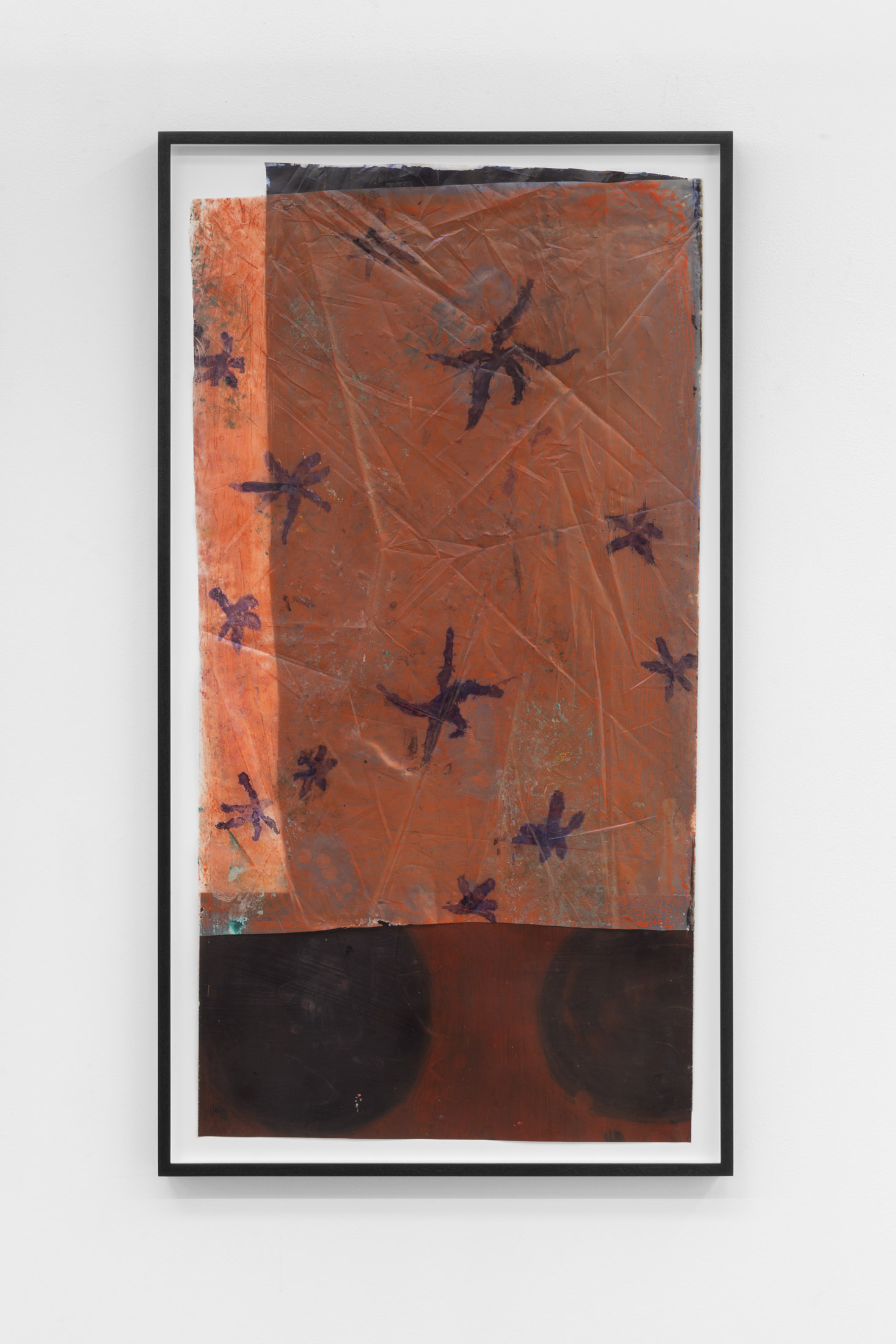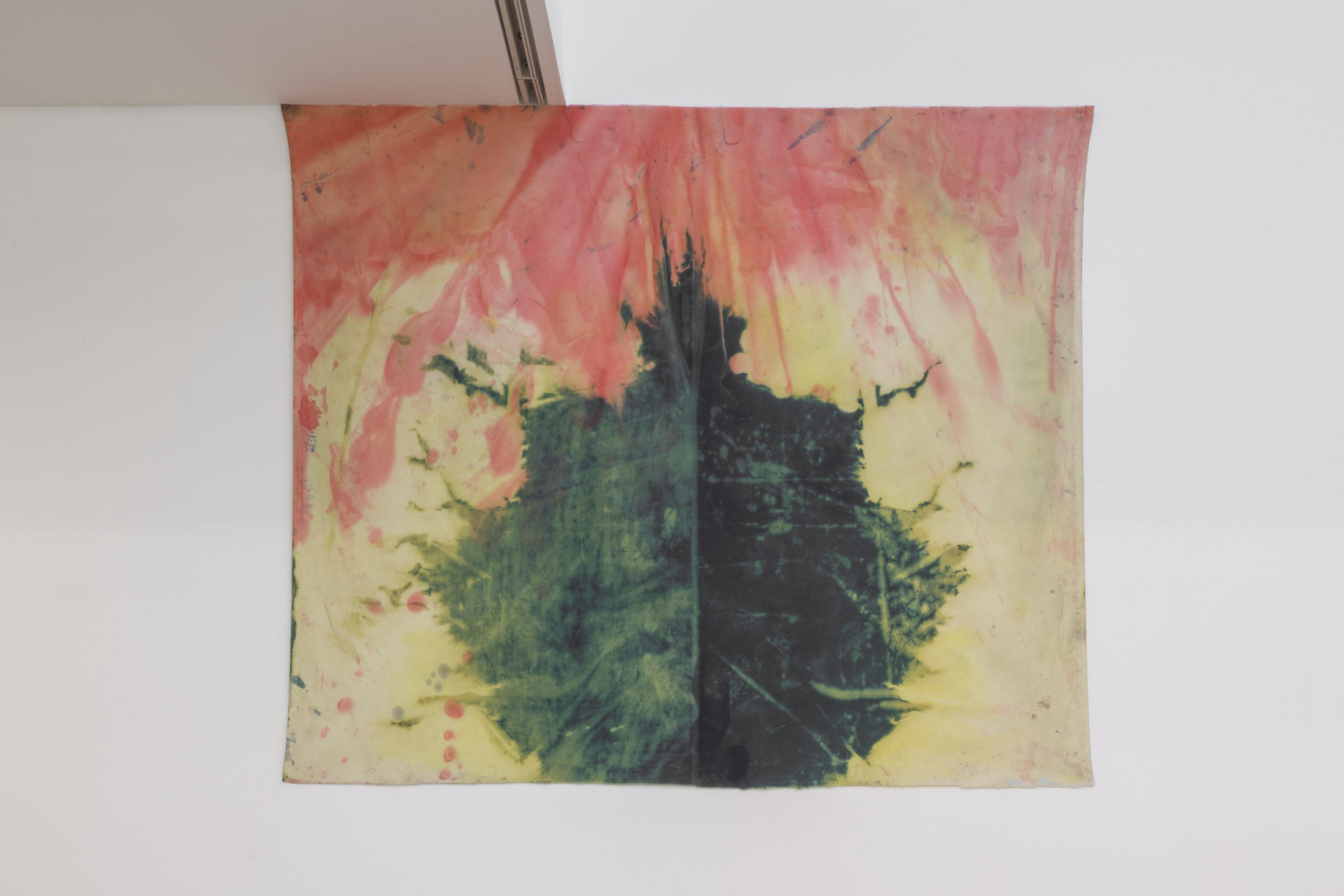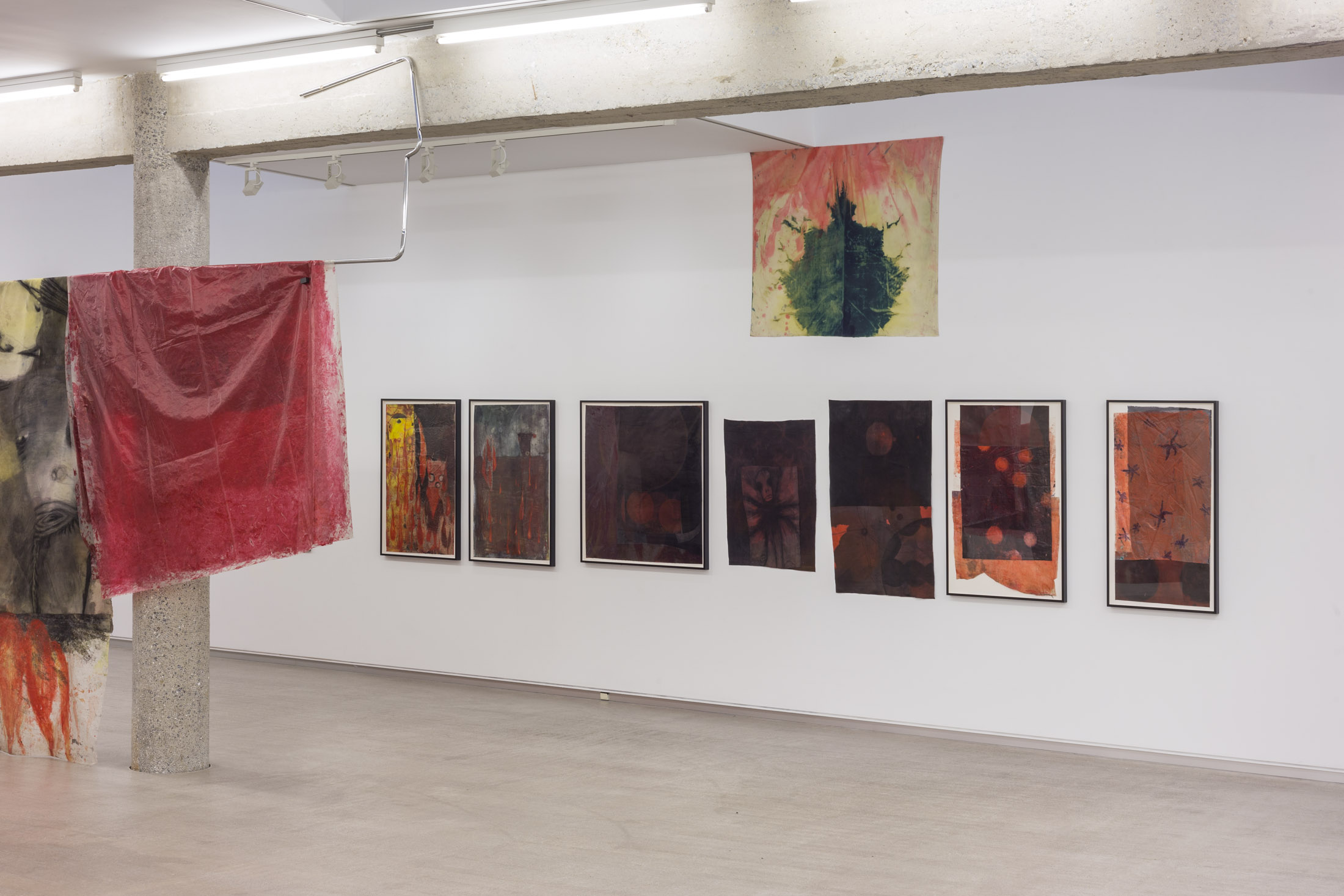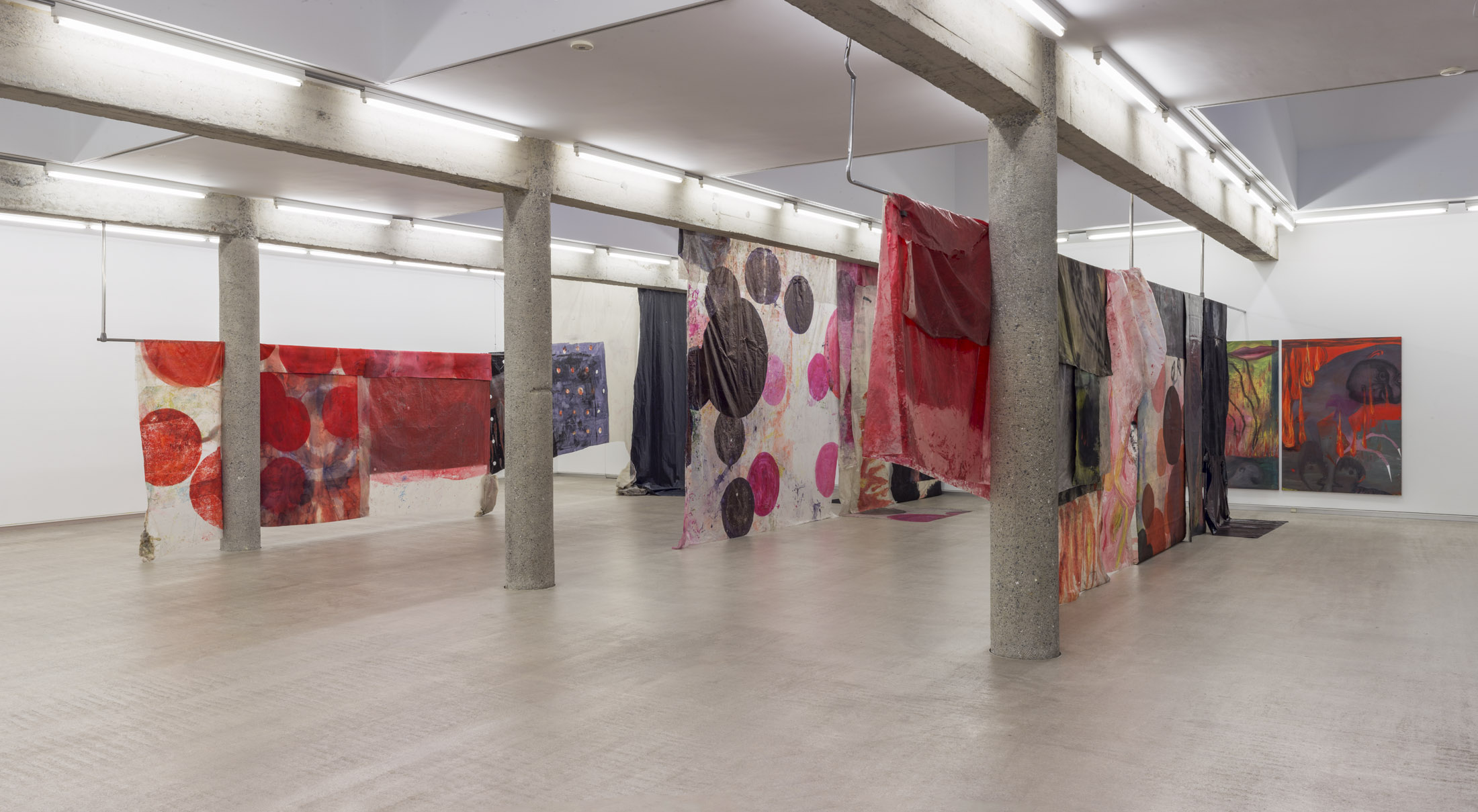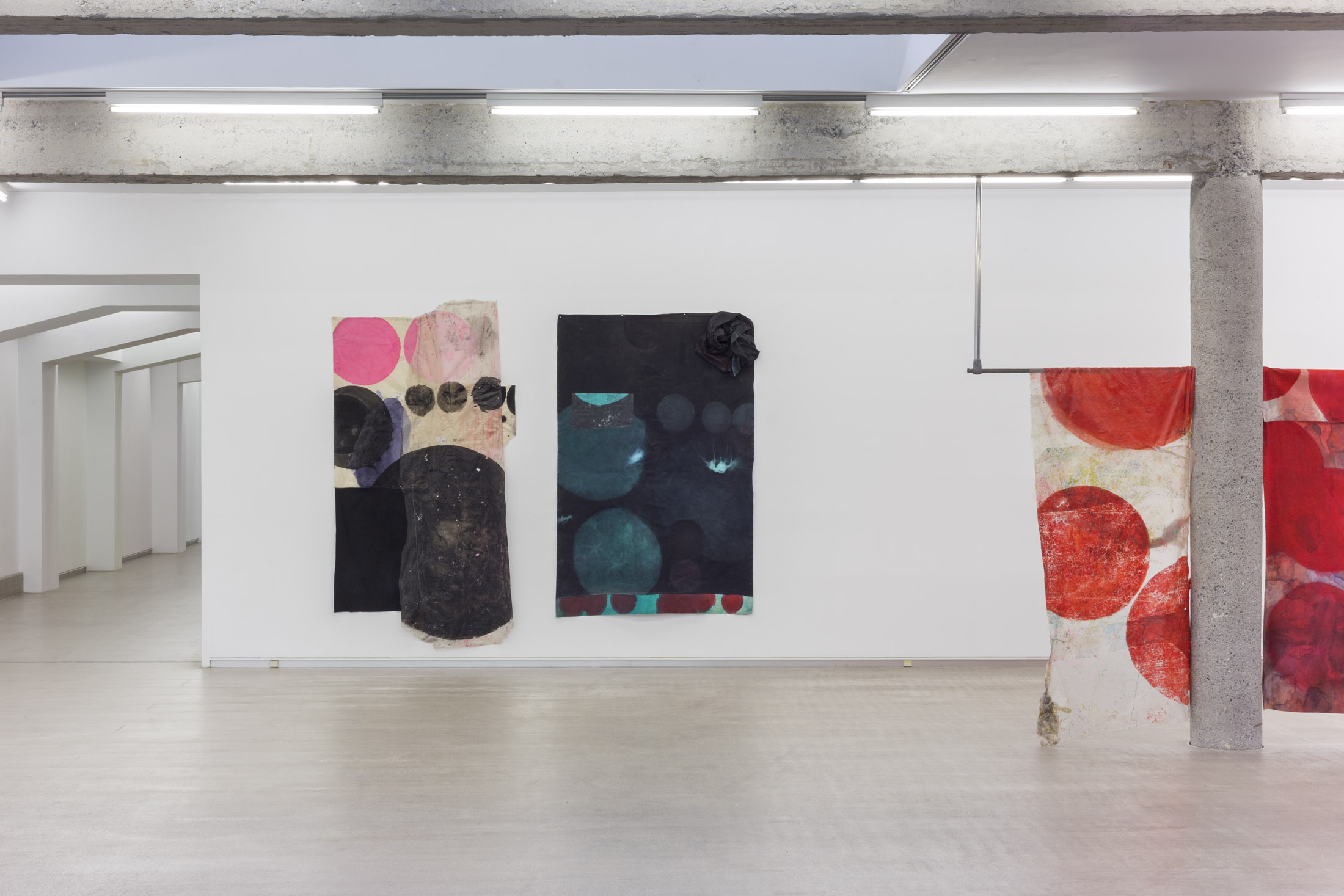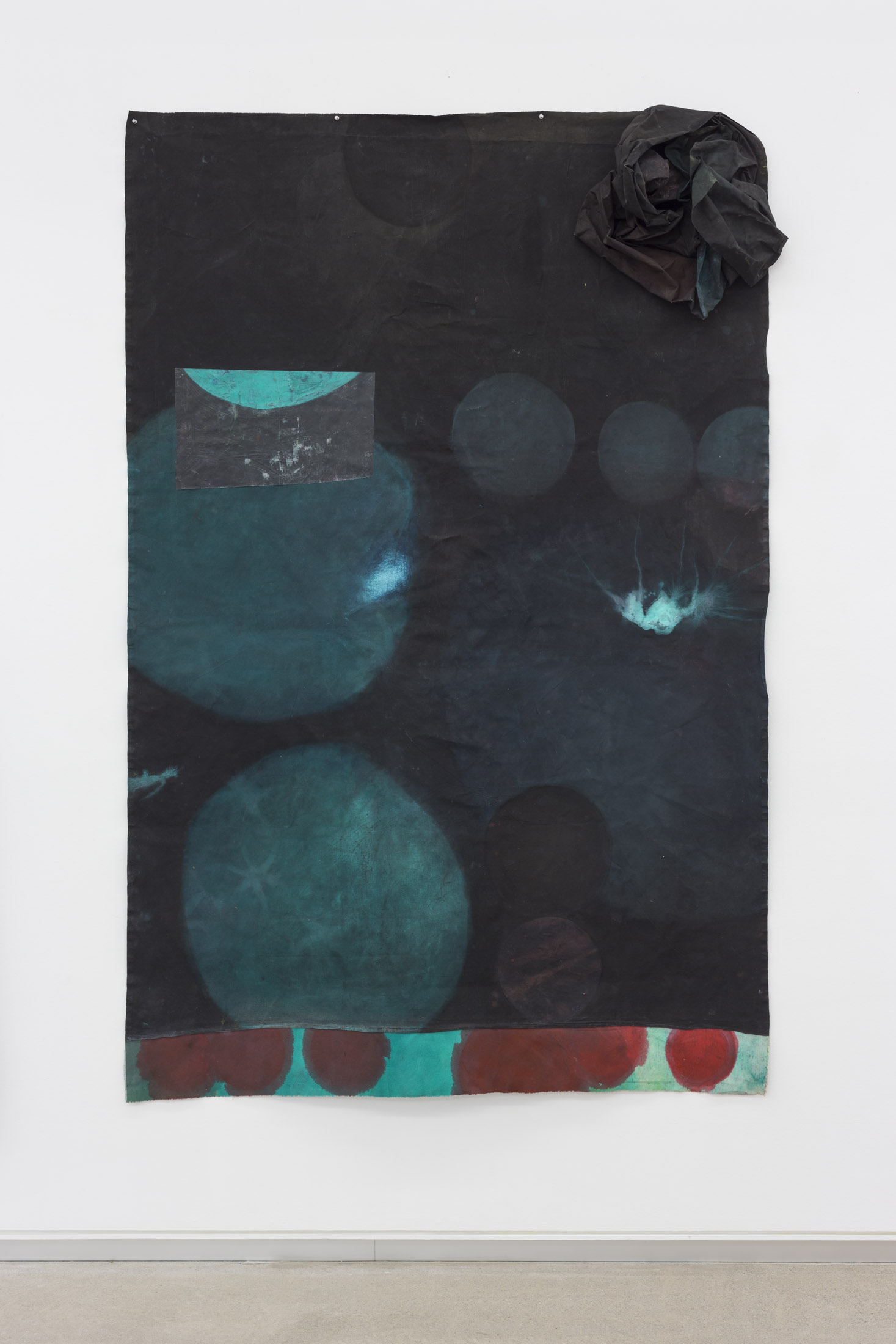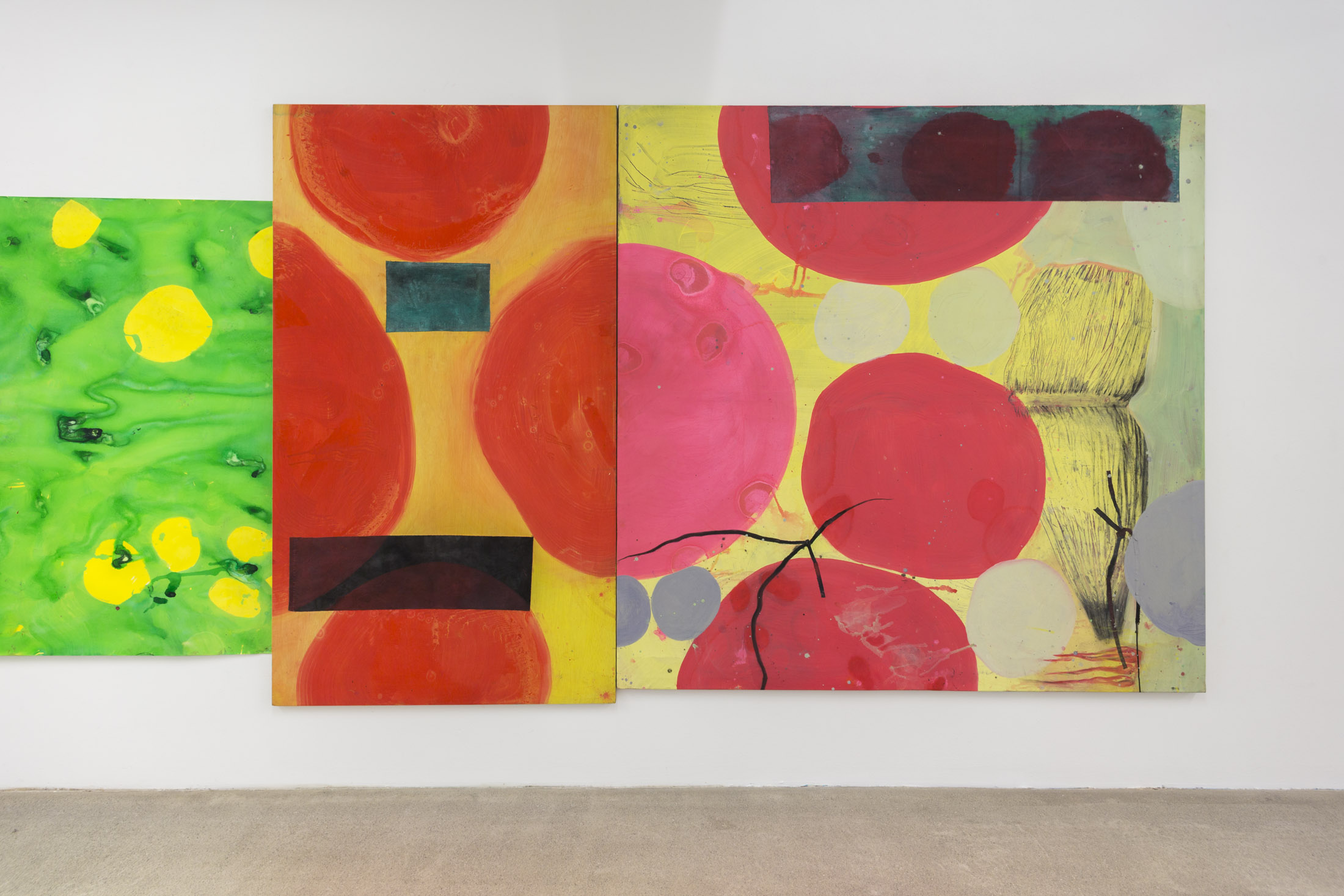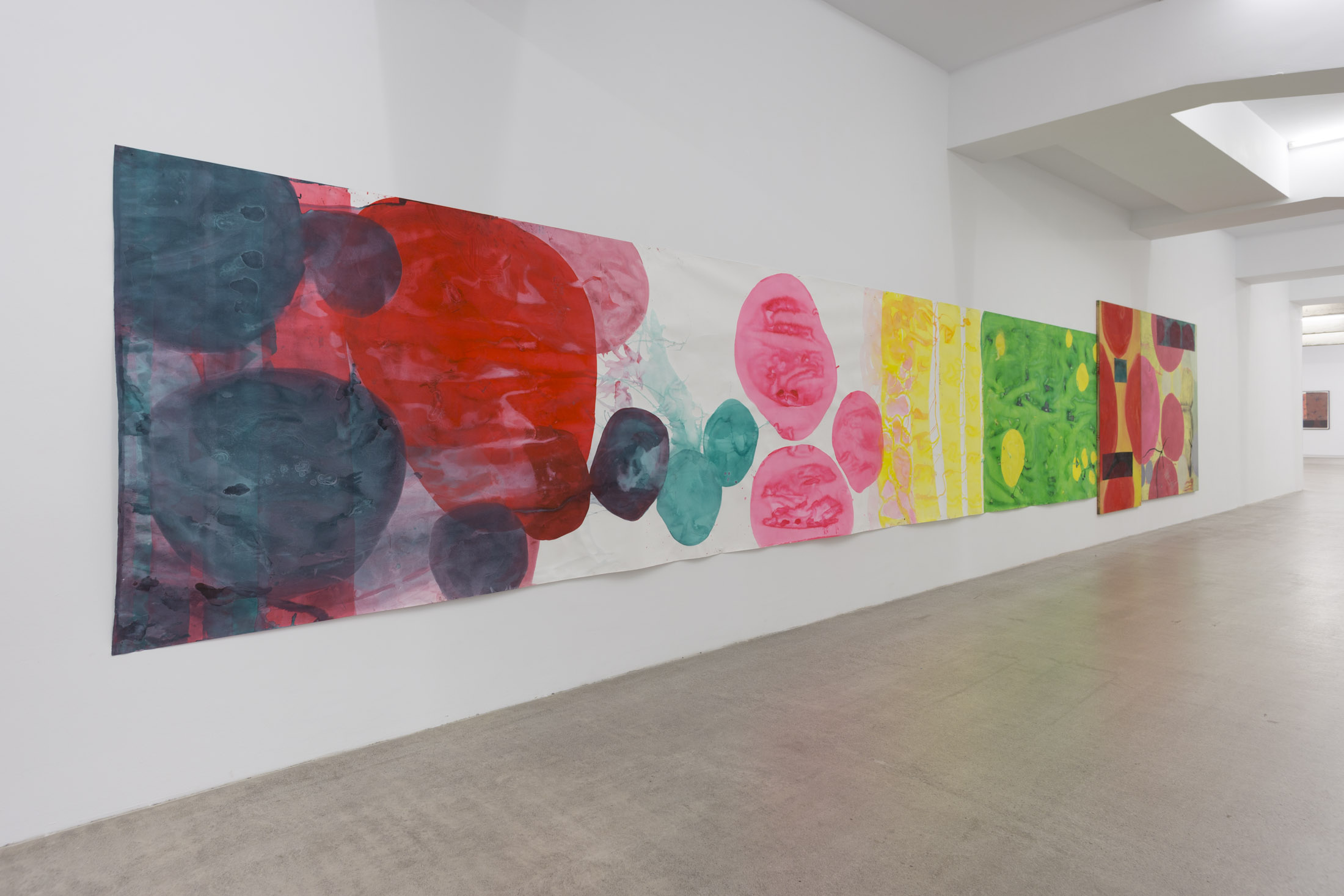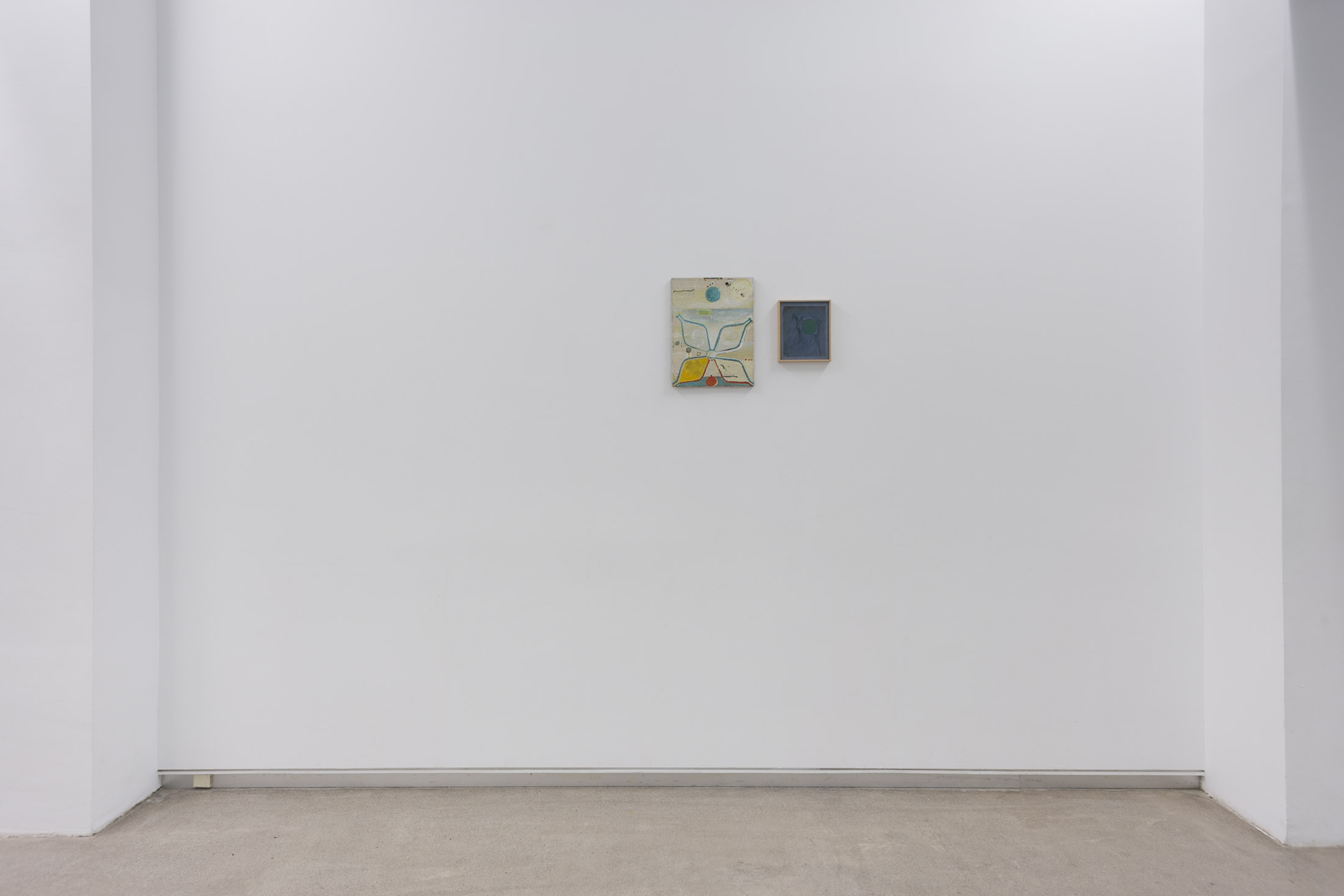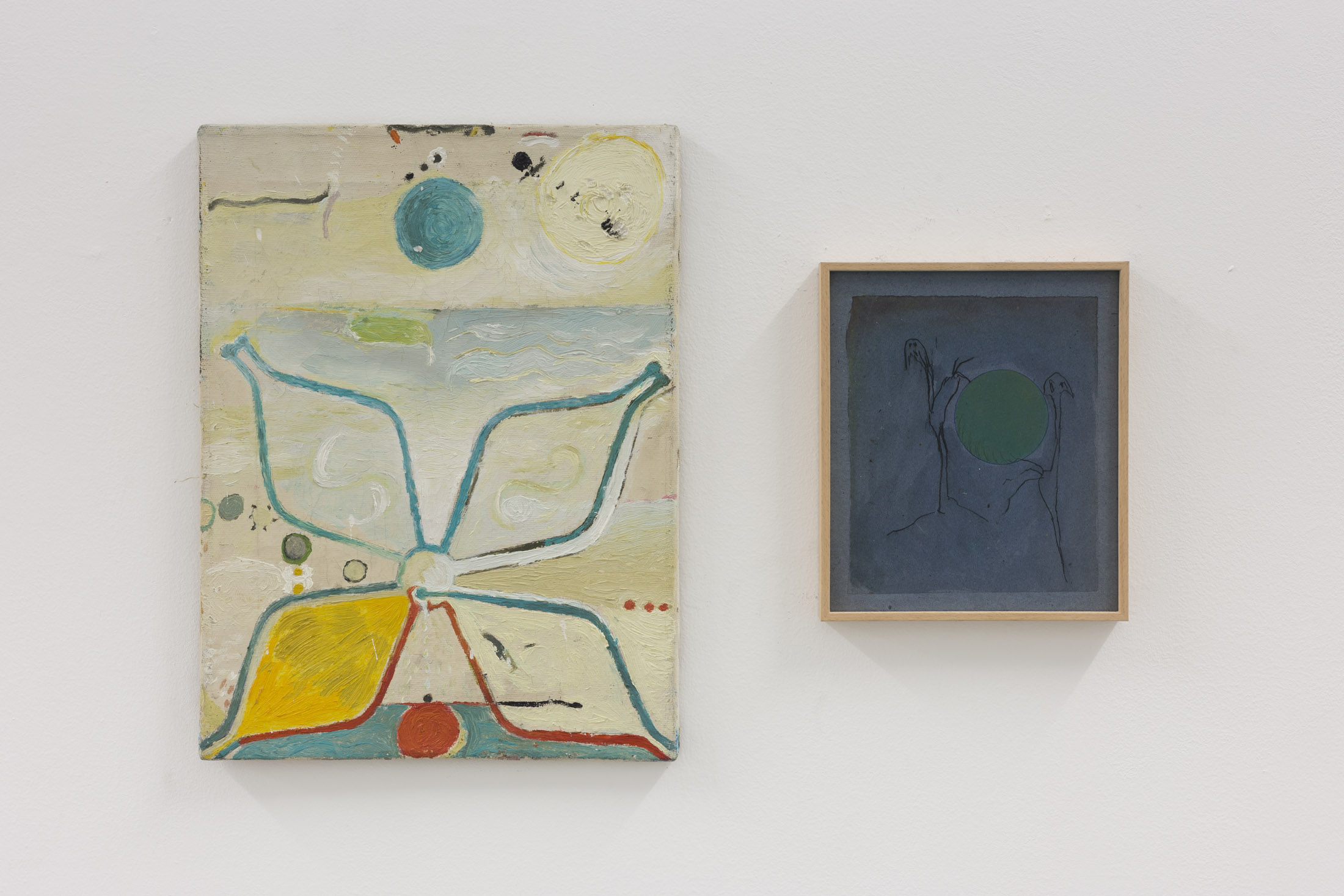Artist: Susana Talayero
Exhibition title: Meteora
Venue: CarrerasMugica, Bilbao, Spain
Date: December 14, 2023 – February 24, 2024
Photography: Ander Sagastiberri / all images copyright and courtesy of the artist and CarrerasMugica, Bilbao
She resolved to take things to the limit, without any drama. To work on the limit, recovering remnants of fabric and plastic piled in the studio. Squeezing the last drop from cans of paint, making the most of it, diluting it with water, with alcohol, until it is almost translucent, not because she was looking for that quality but because she decided to work until everything was exhausted, to work with scant resources, to work with a will to finish at the very moment when every last scrap and bit of plastic was used up. She noted, as a kind of sign: “work to the limit of the material’s forces, when they are running out.” At once, the (somewhat liberating) feeling of finitude slowly vanished like water trickling down a drain clogged up with remains of coagulated paint, and there, floating in that murky pool, a thought of closure seeped out, leaving behind dark-coloured dregs she looked at dispassionately. Her task lay in the turmoil of paint and space. “Paint is punk”, she read on a social media site.
They have just mounted the cortinone, a group of large-format paintings strung together that came from the will and from the residue that sustains the will. As there is not enough space in her studio, it was mounted in an industrial warehouse run by artists, to try to see what the piece called for. There it had a different more rough-and-ready composition: colour-dyed circles overlapped; and crows, skulls and fire were folded separately. When they were bringing the piece back to the studio, they both wondered how they were going to put them together during the process of mounting: “something happy and dark at the same time, something Mediterranean”, her companion said. The medieval was still unresolved, an iconographic swarm (of skulls and fire) gathering around the cortinone. They decided to treat the exhibition space like an object: the large paintings would operate like cuts in the space and, akin to medieval churches, with drawings and smaller works arranged on the sides.
This relationship between past and architecture took her to Venice and to one of its islands, Torcello, to its Byzantine mosaics showing The Last Judgment which she had seen months earlier on the interior wall of the façade of a basilica. It is not that she was particularly interested in the mosaics. What really caught her attention (besides the scenes of bodies burning in everlasting torment) was an angle where the tesserae gradually rotated as they adapted to the curve of the architecture. This specific corner transmitted the absolute commitment of the craftsmen, their dedication to non-time. “It’s the concentration that gives the work its power,” she noted, citing Vivian Gornick.
Back to the studio. Exposed to the elements. All she saw were meaningless objects around her, precarious physical presences and a whole body of machinery dedicated to it. Exposed to the elements. She decided to remake previous works (returning to “working the material to the limit”). She painted on the back of some canvases: the liquid colour seeped through the unprimed canvas, ignoring the difference between the two sides. She used scissors and glue, she sewed badly. Subjecting the work to a kind of sacrifice stimulated her. Then she remembered what an artist had written to her back in the 1980s: “…the exhibition in Basel is over. I’m tired and wonder why I don’t work in a more complex fashion and more mindlessly, more 0, more no.” And she visualised her collage with dismembered furniture embedded in a large window.
The Torcello mosaics obeyed a plan, a predetermined drawing. In her studio the pieces came together following a random logic, paying attention to those correspondences that take place between deeds and objects. She also forced their relationships, clumsily gluing them together. There was a kind of disaster and joyfulness to it: the brazenness proper to processes.
The exhibition Meteora brings together a set of paintings made between 2021 and 2023. Two small works painted in Rome in 1986 act as a kind of preamble and also a knowing nod to her current output. The exhibition is structured around a group of new paintings called Circulos deambulantes (Wandering Circles, 2023), a series of works in a playful exercise with abstraction, within which the Infierno (Inferno, 2021-22) paintings with figurative elements are inserted. Most of them were made using materials recovered from her own work (textiles, wood, plastic), using hands-on techniques (impregnation, spilling) and processes of breaking and reassembling. This suite of paintings then gave rise to Paredes blandas (Soft Walls), three large-format works anchored to the architecture and suspended from the bars (transport handles) that divide the hall into strips.
“I cross the ruins of a poisoned earth still believing in miracles,” Jonas Mekas said. “Serene with precipice,” she thought to herself. Without any drama, taking it to the limit.
Susana Talayero, 1961, lives and works in Bilbao. After graduating in Fine Arts from UPV/EHU she moved to Rome in 1985, where she worked for the next ten years. Among her most recent solo shows are: Presagios, Casa Cultura de Santanyí, Mallorca (2021); El oscuro en su interior, CarrerasMugica, Bilbao (2019); Relatos de entrenamiento, CAB, Burgos (2018); Una certa organizzazione delle cose, AOC F58, Rome (2017) and Crónica inquieta 1986-2016, Museo de Bellas Artes de Bilbao (2016). Her work has also been seen in group shows such as That Time, Tabakalera, Donostia; BBKateak, Museo de Bellas Artes Bilbao (2023); Ciencia fricción, AZ, Bilbao / CCCB, Barcelona; Zerubat, hamaikabide, Artium Museoa, Vitoria-Gasteiz (2022-2023). In 2023, she was awarded the Gure Artea prize for her career.

